Text
♔ Please like, reblog, and support! anything is apricated 🥰
The Illusion of Loyalty

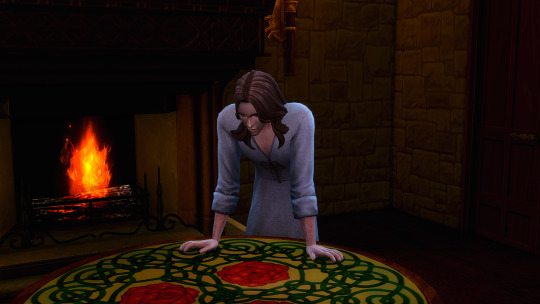
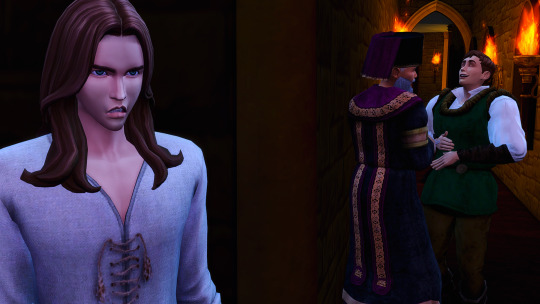
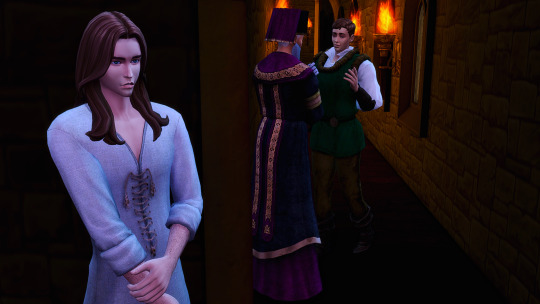
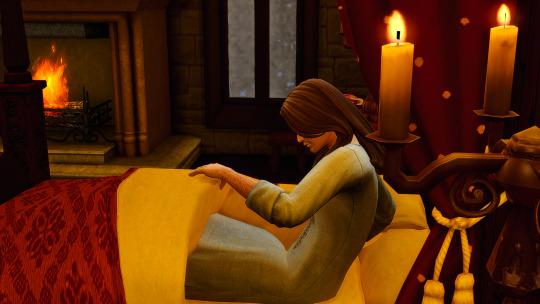




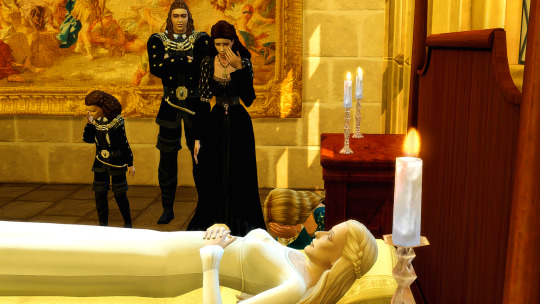
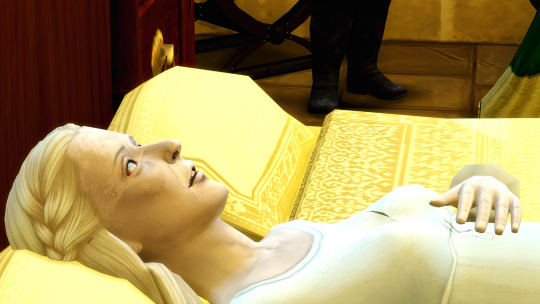

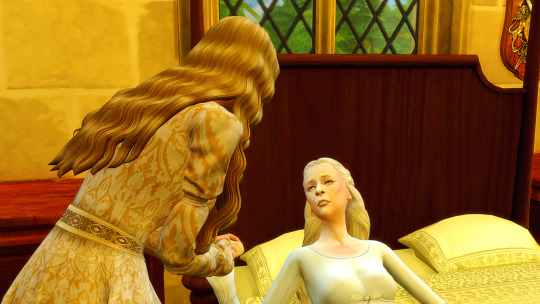


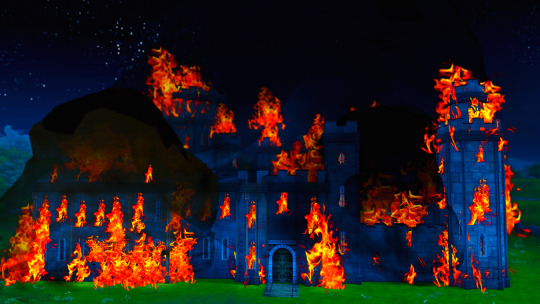
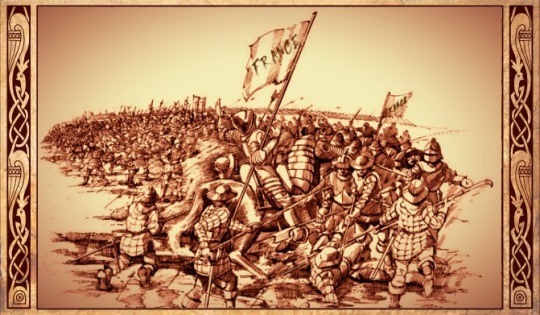

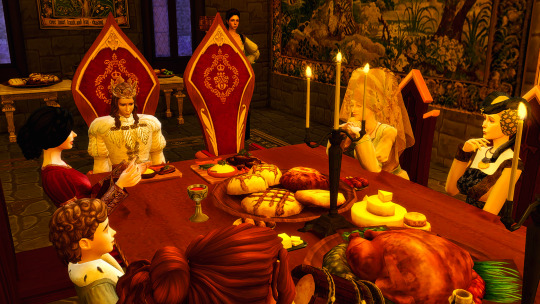


For more than three years, Cordelia's whereabouts have remained a mystery. On Christmas night in the year 1353, the royal family gathered at Windenburg Castle for an opulent feast befitting royalty. The dining hall glowed softly in the dim light as snowflakes danced outside, lending a cozy atmosphere to the occasion. King Edward, now approaching his sixteenth year, sat solemnly at the head of the table, his mind preoccupied with thoughts of his absent mother. Despite the festivities and merriment around him, the lingering absence of Queen Cordelia cast a somber shadow over the gathering.
Since 1350, numerous events have unfolded in rapid succession. In the autumn of 1352, the Kingdom of Bagley faced a formidable threat as the French launched an invasion in a bid to seize control of the land. Their massive army forced Bagley's royal family into exile, seeking refuge in Willowshire. Tragedy struck when Finchwick fell to the invaders, culminating in a devastating ambush on Bagley Castle that left it in ruins, the billowing smoke a grim testament to the chaos that ensued. As the summer of 1353 arrived, the once-proud Royal House of Bagley found itself teetering on the brink of collapse under the relentless onslaught of war.
Back at Willowshire Castle, the suffering persists. Priscilla, the Dowager Queen of Bagley and the last living descendant of the Tredonian Dynasty, a pure Tredonian lineage that has endured since the year 999, has grown gravely ill in recent weeks. She lay in her chambers, surrounded by family, being comforted by her daughter Corrine. Suddenly, she awoke from her slumber, looked to Corrine, and asked, "Wherefore art thou, Cordelia? Hast thou unearthed her whereabouts?" Corrine looked at her mother with sad eyes, softly shaking her head. The look of fear lingered in Priscilla's eyes as she responded, "My dear Corrine, as I lay here, feeling the weight of time pressing upon me, I must share with you a heavy burden that rests upon my heart. My soul trembles with the fear of the unknown. In these moments of uncertainty, I urge you to remember that even in darkness, there is strength to be found. Hold fast to hope, for it is a beacon that guides us through the darkest of nights. Trust in the resilience of our family, and believe that love will prevail, no matter the trials we face. Remember, my child, that courage is not the absence of fear, but the determination to persevere despite it. Let these words be a balm for your troubled spirit, and may they grant you the fortitude to weather this storm with grace and resilience."
Corrine provided assurance to Priscilla that their search for Cordelia would never cease, affirming the enduring legacy of the Bagley Dynasty. The next morning, Priscilla succumbed to her illness at the age of 66. Her grieving family gathered around her, draped in mourning attire, grappling with the unfathomable reality of her passing.
King Henry perceived the ominous signs accumulating around Bagley, the economy plummeting as the French ravaged markets and homes, spreading chaos through the once-prosperous kingdom. Amidst this turmoil, King Henry discerned an opportunity that could not be overlooked. Meeting with King Edward of Windenburg and his trusted Regent and Lord Protector, Lord Richard, King Henry orchestrated a pivotal meeting.
Gathered within the solemn halls of Windenburg Castle, Henry, Edward, and Richard engaged in negotiations fraught with tension and urgency. Aware of Bagley's dire state and the looming threat of the French invasion, Henry proposed a bold exchange. In a solemn pact, Henry relinquished the deed to Willowshire, a symbolic gesture of trust and alliance, in exchange for a substantial amount of gold from Windenburg that would provide them security for years to come.
The terms were meticulously crafted to ensure Bagley's survival amidst the ravages of war, the gold serving as a vital lifeline to protect the kingdom's interests and fortify its defenses. Edward, recognizing the gravity of the situation and the importance of solidarity among neighboring realms, graciously accepted the agreement. In an act of magnanimity, Edward extended hospitality to Henry and his kin, permitting them to remain within the walls of Willowshire Castle until the tumultuous war had run its course.
After the grandeur of the Christmas feast had faded and the halls of Windenburg Castle quieted down, King Edward retired to his chambers for the night. However, sleep eluded him, and a gnawing hunger stirred his stomach. With a sigh, he rose from his bed and made his way to the dimly lit dining hall, hoping to find a servant to attend to his late-night craving.
As he stepped into the corridor outside his chambers, his ears caught snippets of conversation coming from nearby. Against the stone wall, he listened intently as Lord Richard and Father Paul Leudemond engaged in a discussion that sent shivers down his spine.
"Intriguing," Paul remarked with a sly grin. "First, Bagley Castle succumbs to flames, a spectacle fit for legends." Lord Richard nodded in agreement, a knowing glint in his eyes.
"And then, the Dowager Queen Priscilla's demise. Quite a coincidence, wouldn't you say?" The tone grew somber as they delved into the recent events, with Paul adding, "A cruel twist indeed. But let us not overlook the grand finale. Willowshire slipping through their fingers into Windenburg's embrace. Oh, the tragedy of Bagley seems boundless." Despite the gravity of their words, Lord Richard couldn't help but chuckle with a hint of mockery. "Ah, but there's one more delightful twist to savor. Our elusive Cordelia, hidden away amidst the chaos. Yet, we know precisely where she lies."
Paul nodded in agreement, summing up their thoughts. Both men erupted into laughter at their manipulation of power, oblivious to King Edward's vigilant ears absorbing every word.
Consumed by fury, Edward felt the weight of betrayal heavy upon his shoulders as he refrained from confronting Lord Richard and Father Paul. His mind echoed with their mocking laughter, each chuckle a dagger in his trust. As he retreated to the sanctuary of his chambers, the flickering candlelight cast shadows of doubt upon his once unyielding faith in those around him.
Inside, the room seemed to shrink around him, suffocating him with the enormity of his anger. His clenched fists trembled, his jaw tight with restrained emotions. The silence was deafening, amplifying the bitter taste of realization that trust, once a cherished virtue, had become a fragile illusion in the treacherous landscape of a political game.
#simsmedieval#royalsims#windenburg#sims4#royal#sims#gameofthrones#thesimsmedieval#royalty#simsstory#simmer#royalty sims#historical sims#sim legacy#ts4 simblr#sims 4#simblr#sims 4 gameplay#sims 4 screenshots#sims 4 cc#sims 4 aesthetic#the sims#ts4#show us your sims#ultimate decades challenge#ts4 decades challenge#sims 4 decades#decades legacy#legacy challenge#ts4 legacy
25 notes
·
View notes
Text
The Illusion of Loyalty





















For more than three years, Cordelia's whereabouts have remained a mystery. On Christmas night in the year 1353, the royal family gathered at Windenburg Castle for an opulent feast befitting royalty. The dining hall glowed softly in the dim light as snowflakes danced outside, lending a cozy atmosphere to the occasion. King Edward, now approaching his sixteenth year, sat solemnly at the head of the table, his mind preoccupied with thoughts of his absent mother. Despite the festivities and merriment around him, the lingering absence of Queen Cordelia cast a somber shadow over the gathering.
Since 1350, numerous events have unfolded in rapid succession. In the autumn of 1352, the Kingdom of Bagley faced a formidable threat as the French launched an invasion in a bid to seize control of the land. Their massive army forced Bagley's royal family into exile, seeking refuge in Willowshire. Tragedy struck when Finchwick fell to the invaders, culminating in a devastating ambush on Bagley Castle that left it in ruins, the billowing smoke a grim testament to the chaos that ensued. As the summer of 1353 arrived, the once-proud Royal House of Bagley found itself teetering on the brink of collapse under the relentless onslaught of war.
Back at Willowshire Castle, the suffering persists. Priscilla, the Dowager Queen of Bagley and the last living descendant of the Tredonian Dynasty, a pure Tredonian lineage that has endured since the year 999, has grown gravely ill in recent weeks. She lay in her chambers, surrounded by family, being comforted by her daughter Corrine. Suddenly, she awoke from her slumber, looked to Corrine, and asked, "Wherefore art thou, Cordelia? Hast thou unearthed her whereabouts?" Corrine looked at her mother with sad eyes, softly shaking her head. The look of fear lingered in Priscilla's eyes as she responded, "My dear Corrine, as I lay here, feeling the weight of time pressing upon me, I must share with you a heavy burden that rests upon my heart. My soul trembles with the fear of the unknown. In these moments of uncertainty, I urge you to remember that even in darkness, there is strength to be found. Hold fast to hope, for it is a beacon that guides us through the darkest of nights. Trust in the resilience of our family, and believe that love will prevail, no matter the trials we face. Remember, my child, that courage is not the absence of fear, but the determination to persevere despite it. Let these words be a balm for your troubled spirit, and may they grant you the fortitude to weather this storm with grace and resilience."
Corrine provided assurance to Priscilla that their search for Cordelia would never cease, affirming the enduring legacy of the Bagley Dynasty. The next morning, Priscilla succumbed to her illness at the age of 66. Her grieving family gathered around her, draped in mourning attire, grappling with the unfathomable reality of her passing.
King Henry perceived the ominous signs accumulating around Bagley, the economy plummeting as the French ravaged markets and homes, spreading chaos through the once-prosperous kingdom. Amidst this turmoil, King Henry discerned an opportunity that could not be overlooked. Meeting with King Edward of Windenburg and his trusted Regent and Lord Protector, Lord Richard, King Henry orchestrated a pivotal meeting.
Gathered within the solemn halls of Windenburg Castle, Henry, Edward, and Richard engaged in negotiations fraught with tension and urgency. Aware of Bagley's dire state and the looming threat of the French invasion, Henry proposed a bold exchange. In a solemn pact, Henry relinquished the deed to Willowshire, a symbolic gesture of trust and alliance, in exchange for a substantial amount of gold from Windenburg that would provide them security for years to come.
The terms were meticulously crafted to ensure Bagley's survival amidst the ravages of war, the gold serving as a vital lifeline to protect the kingdom's interests and fortify its defenses. Edward, recognizing the gravity of the situation and the importance of solidarity among neighboring realms, graciously accepted the agreement. In an act of magnanimity, Edward extended hospitality to Henry and his kin, permitting them to remain within the walls of Willowshire Castle until the tumultuous war had run its course.
After the grandeur of the Christmas feast had faded and the halls of Windenburg Castle quieted down, King Edward retired to his chambers for the night. However, sleep eluded him, and a gnawing hunger stirred his stomach. With a sigh, he rose from his bed and made his way to the dimly lit dining hall, hoping to find a servant to attend to his late-night craving.
As he stepped into the corridor outside his chambers, his ears caught snippets of conversation coming from nearby. Against the stone wall, he listened intently as Lord Richard and Father Paul Leudemond engaged in a discussion that sent shivers down his spine.
"Intriguing," Paul remarked with a sly grin. "First, Bagley Castle succumbs to flames, a spectacle fit for legends." Lord Richard nodded in agreement, a knowing glint in his eyes.
"And then, the Dowager Queen Priscilla's demise. Quite a coincidence, wouldn't you say?" The tone grew somber as they delved into the recent events, with Paul adding, "A cruel twist indeed. But let us not overlook the grand finale. Willowshire slipping through their fingers into Windenburg's embrace. Oh, the tragedy of Bagley seems boundless." Despite the gravity of their words, Lord Richard couldn't help but chuckle with a hint of mockery. "Ah, but there's one more delightful twist to savor. Our elusive Cordelia, hidden away amidst the chaos. Yet, we know precisely where she lies."
Paul nodded in agreement, summing up their thoughts. Both men erupted into laughter at their manipulation of power, oblivious to King Edward's vigilant ears absorbing every word.
Consumed by fury, Edward felt the weight of betrayal heavy upon his shoulders as he refrained from confronting Lord Richard and Father Paul. His mind echoed with their mocking laughter, each chuckle a dagger in his trust. As he retreated to the sanctuary of his chambers, the flickering candlelight cast shadows of doubt upon his once unyielding faith in those around him.
Inside, the room seemed to shrink around him, suffocating him with the enormity of his anger. His clenched fists trembled, his jaw tight with restrained emotions. The silence was deafening, amplifying the bitter taste of realization that trust, once a cherished virtue, had become a fragile illusion in the treacherous landscape of a political game.
#simsmedieval#royalsims#windenburg#sims4#royal#sims#gameofthrones#thesimsmedieval#royalty#simsstory#simmer#historical sims#royalty sims#sim legacy#ts4 simblr#sims 4#simblr#sims 4 gameplay#sims 4 screenshots#sims 4 cc#sims 4 aesthetic#the sims#ts4#show us your sims#ultimate decades challenge#ts4 decades challenge#sims 4 decades#decades legacy#legacy challenge#ts4 legacy
25 notes
·
View notes
Text
Please like and follow for support
⊹₊♚₊⊹
Deception & Reunion
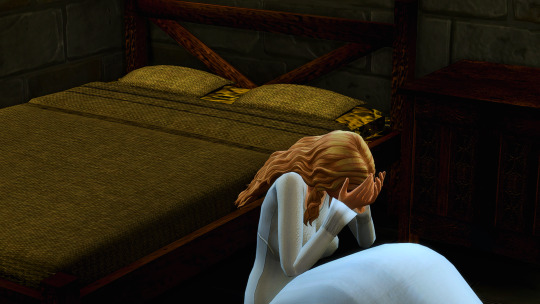


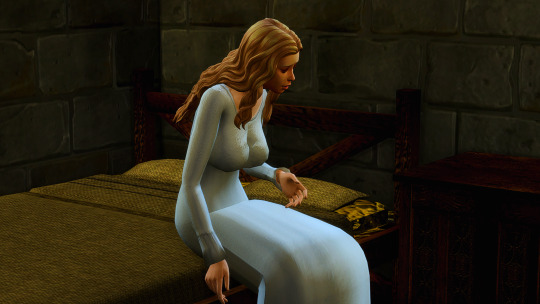
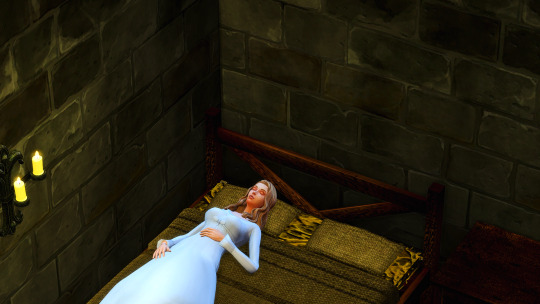

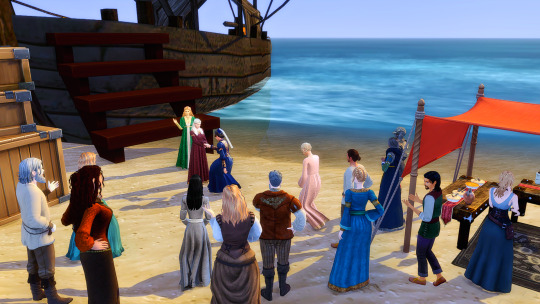
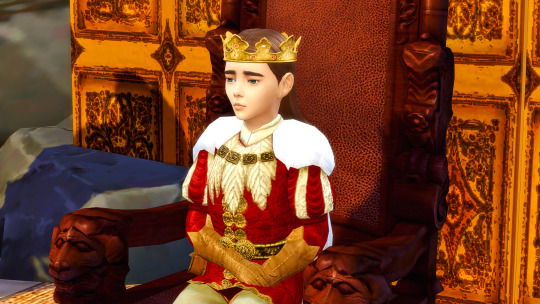
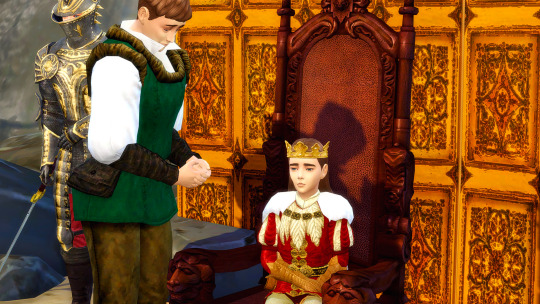
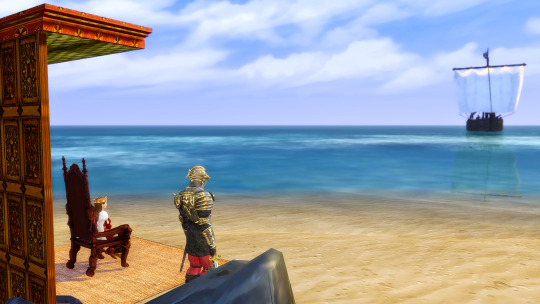
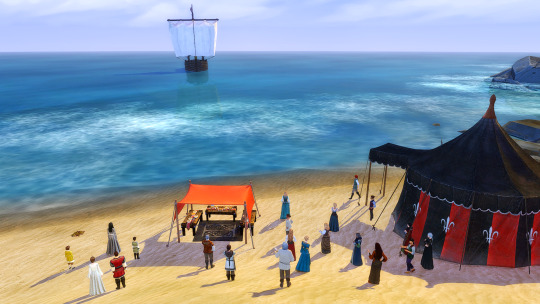

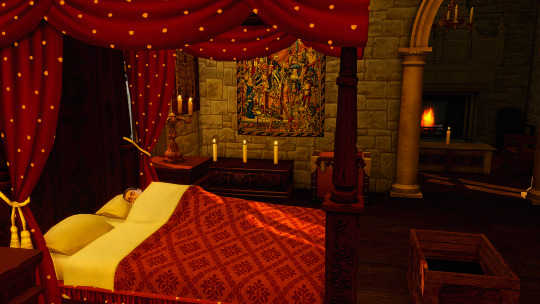

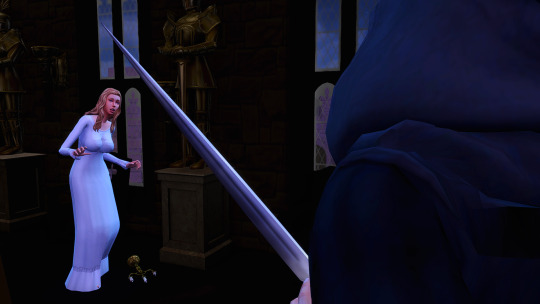


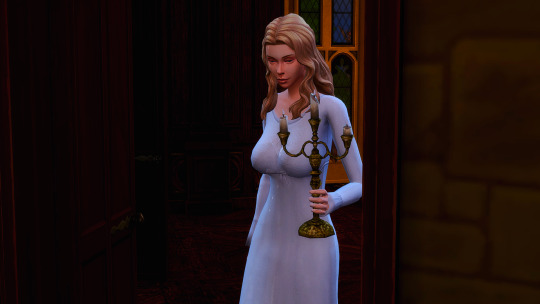
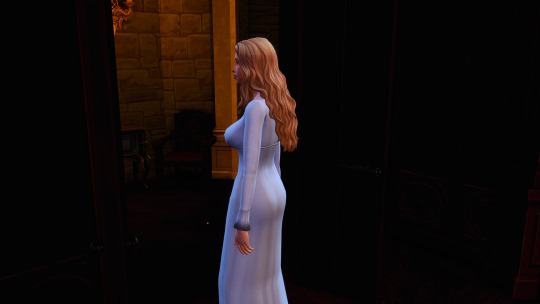
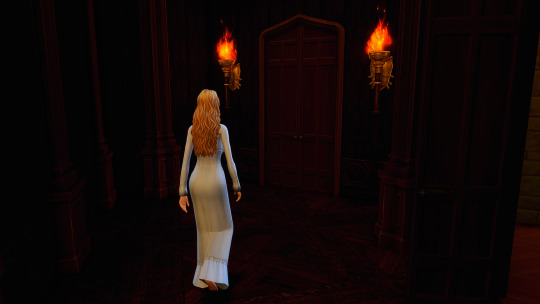
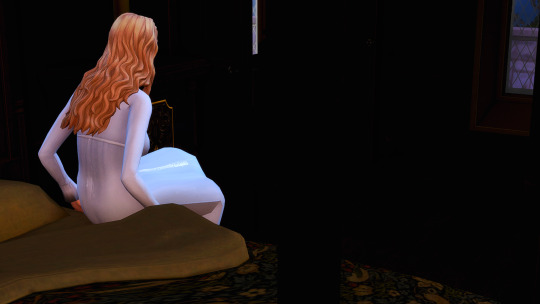
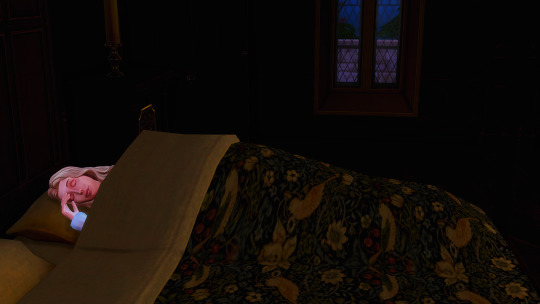

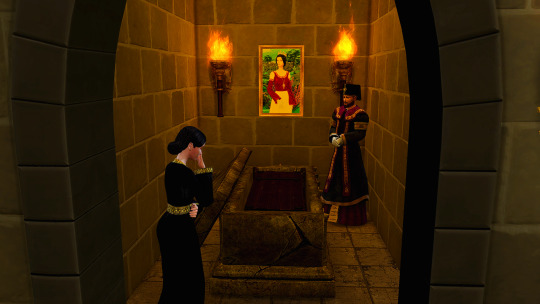


In the short time since King Edward ascended to the throne, his actions have left a profound impact on Windenburg. With the skies clearing of smoke and homes being rebuilt, the kingdom began to flourish once more. One of Edward's earliest acts as King was to restore his sister Augusta's rightful titles. In a grand ceremony held at Windenburg Castle, King Edward crowned Augusta as Princess once again, reinstating her household and all the privileges that had been taken from her years ago. Additionally, Edward orchestrated the exhumation of late Queen Fiona's remains from the Tower, granting her a proper burial in the vault beneath Westsimster Abbey. This gesture held immense significance for Augusta, who had long yearned for the opportunity to know her mother and was previously forbidden from speaking of her.
Despite the renewed hope and progress in Windenburg, darkness still persisted. Within the confines of Windenburg Castle, on a chilling Autumn night, Queen Cordelia lay nestled in her chambers, the warmth of the hearth casting gentle flickers of light across the room. Suddenly, she was jolted awake by a thunderous banging on her chamber door, echoing through the stillness of the castle.
Intrigued yet cautious, Cordelia rose from her bed, she approached the heavy oak door, the rhythmic pounding growing louder with each step. With a deep breath, she unlocked the latch and pulled the door open, only to be greeted by an empty corridor. Confusion knitted her brow as she glanced around, expecting to see her guards stationed nearby, but they were nowhere to be found.
A sense of unease crept over her, prompting Cordelia to step into the corridor, she moved cautiously, her footsteps echoing softly against the walls. As she rounded a corner, another noise pierced the silence, causing her to halt in her tracks. Her heart raced as she turned, her candlestick trembling slightly in her grasp.
There, hiding in the shadows, stood a figure clad in dark attire, the glint of steel catching her eye. Cordelia's breath caught in her throat, her mind racing with a mix of fear and disbelief. She had stumbled upon an armed intruder, a threat lurking within the very halls of her castle. Time seemed to slow as she struggled to comprehend the danger before her.
In a moment of terror, Cordelia's grip faltered, and the candlestick slipped from her fingers, clattering to the floor with a resounding thud. The sound echoed through the corridor, a stark reminder of the perilous situation unfolding around her.
As the first light of dawn painted the sky over Windenburg, a sense of unease settled over the castle. Queen Cordelia's continued absence was unusual, her presence normally a steadfast pillar within the fortress walls. In his chambers, King Edward lay in a peaceful slumber, the gentle morning sun filtering through the ornate windows.
Lady Philippa, a trusted advisor known for her composed demeanor, entered the chamber with purpose. Her voice, though calm, carried an undertone of concern as she called out to rouse Edward from his sleep. The news of a Tartosan-flagged ship's sighting added a layer of intrigue to the morning. Edward's awakening was met with a humble smirk, a blend of curiosity and anticipation evident in his expression. He sought clarification from Philippa regarding his mother's possible return, her response tinged with a subtle hint of doubt.
That morning, a bustling scene unfolded along the Windenburg coastline. Tents were meticulously pitched, and the diligent servants ensured an abundance of food was prepared for the anticipated guests' arrival. King Edward, amidst the festivity, gazed out toward the sea where the Tartosan-flagged ship approached, its arrival met with cheers and jubilation from the gathered crowd. Despite the celebratory atmosphere, Edward's mind was consumed with concern for his missing mother. He struggled to push aside the nagging feeling of uncertainty, focusing instead on the tasks at hand.
Standing next to Edward, Lord Richard, who had taken on the roles of Lord Protector and Regent, provided comforting words, assuring the king that everything would be fine. He ventured to speculate that Cordelia could possibly be visiting relatives in Bagley. As Richard moved away, Edward's mind wandered, grappling with the uncertainty of his mother's whereabouts and the perplexing circumstances surrounding her sudden disappearance.
As the ship finally docked at the shore, a flurry of activity ensued. The Dowager Queen Margaery and Empress Mary, accompanied by their entourage, disembarked from the vessel. Among the welcoming throng, Lady Jane rushed forward to greet her long-absent mother. It had been 21 years since their parting, and Jane's joy at seeing Margaery again was palpable. Emotions ran high as Lady Dorethea embraced Margaery warmly, tears of disbelief streaming down her cheeks. Years of uncertainty and doubt had led them to believe that Margaery would never return to Windenburg, adding to the emotional weight of this reunion.
In a dark, stone room, Cordelia lay sprawled on a rough straw mattress. The cold, damp air clawed at her skin, permeating every breath with a musty stench that hung heavy in her lungs. The rhythmic drip of water echoed ominously, a constant reminder of her captivity in this dismal abyss.
As her consciousness reluctantly resurfaced, Cordelia's senses were assaulted by the oppressive atmosphere. With a pained groan, she struggled to sit up, her mind reeling with disorientation and fear.
"Where am I?" Her voice quivered, lost in the suffocating darkness. "How did I end up here?" The questions lingered in the air, unanswered echoes that only intensified the sense of foreboding that enveloped her.
As the haze of confusion slowly dissipated, Cordelia pieced together the grim sequence of events that had led her to this desolate place. She had been snatched, taken hostage by an unknown assailant. But why had this happened? And where was her captor now?
Unbeknownst to Cordelia, the Jacoban Clergy had struck a dark bargain with the newly appointed Lord Lorus Landgraab. They tempted him with a substantial sum to utilize his castle, situated on the Isle near Aarbyville, as the ideal site for Cordelia's secretive imprisonment. Lorus, barely 18 and naive to the clergy's ulterior motives, accepted the offer.
After a failed attempt to break free, Cordelia's desperate cries for help echoed fruitlessly in the sealed chamber. The solid door stood as an impenetrable barrier, leaving her trapped in a state of utter despair. She sank to her knees, hands gripping her face, questioning her fate with a heavy heart.
#simsmedieval#royalsims#windenburg#sims4#royal#sims#gameofthrones#thesimsmedieval#royalty#simsstory#royal court#sims medieval#middle ages#medieval art#medieval#13th century#14th century#royalty sims#young royals#game of thrones#royalsim#sims 4#my sims#sims 4 decades#ts4 decades challenge#historicalsims#sims 4 gameplay#historical sims#history#ultimate decades challenge
31 notes
·
View notes
Text
Deception & Reunion


























In the short time since King Edward ascended to the throne, his actions have left a profound impact on Windenburg. With the skies clearing of smoke and homes being rebuilt, the kingdom began to flourish once more. One of Edward's earliest acts as King was to restore his sister Augusta's rightful titles. In a grand ceremony held at Windenburg Castle, King Edward crowned Augusta as Princess once again, reinstating her household and all the privileges that had been taken from her years ago. Additionally, Edward orchestrated the exhumation of late Queen Fiona's remains from the Tower, granting her a proper burial in the vault beneath Westsimster Abbey. This gesture held immense significance for Augusta, who had long yearned for the opportunity to know her mother and was previously forbidden from speaking of her.
Despite the renewed hope and progress in Windenburg, darkness still persisted. Within the confines of Windenburg Castle, on a chilling Autumn night, Queen Cordelia lay nestled in her chambers, the warmth of the hearth casting gentle flickers of light across the room. Suddenly, she was jolted awake by a thunderous banging on her chamber door, echoing through the stillness of the castle.
Intrigued yet cautious, Cordelia rose from her bed, she approached the heavy oak door, the rhythmic pounding growing louder with each step. With a deep breath, she unlocked the latch and pulled the door open, only to be greeted by an empty corridor. Confusion knitted her brow as she glanced around, expecting to see her guards stationed nearby, but they were nowhere to be found.
A sense of unease crept over her, prompting Cordelia to step into the corridor, she moved cautiously, her footsteps echoing softly against the walls. As she rounded a corner, another noise pierced the silence, causing her to halt in her tracks. Her heart raced as she turned, her candlestick trembling slightly in her grasp.
There, hiding in the shadows, stood a figure clad in dark attire, the glint of steel catching her eye. Cordelia's breath caught in her throat, her mind racing with a mix of fear and disbelief. She had stumbled upon an armed intruder, a threat lurking within the very halls of her castle. Time seemed to slow as she struggled to comprehend the danger before her.
In a moment of terror, Cordelia's grip faltered, and the candlestick slipped from her fingers, clattering to the floor with a resounding thud. The sound echoed through the corridor, a stark reminder of the perilous situation unfolding around her.
As the first light of dawn painted the sky over Windenburg, a sense of unease settled over the castle. Queen Cordelia's continued absence was unusual, her presence normally a steadfast pillar within the fortress walls. In his chambers, King Edward lay in a peaceful slumber, the gentle morning sun filtering through the ornate windows.
Lady Philippa, a trusted advisor known for her composed demeanor, entered the chamber with purpose. Her voice, though calm, carried an undertone of concern as she called out to rouse Edward from his sleep. The news of a Tartosan-flagged ship's sighting added a layer of intrigue to the morning. Edward's awakening was met with a humble smirk, a blend of curiosity and anticipation evident in his expression. He sought clarification from Philippa regarding his mother's possible return, her response tinged with a subtle hint of doubt.
That morning, a bustling scene unfolded along the Windenburg coastline. Tents were meticulously pitched, and the diligent servants ensured an abundance of food was prepared for the anticipated guests' arrival. King Edward, amidst the festivity, gazed out toward the sea where the Tartosan-flagged ship approached, its arrival met with cheers and jubilation from the gathered crowd. Despite the celebratory atmosphere, Edward's mind was consumed with concern for his missing mother. He struggled to push aside the nagging feeling of uncertainty, focusing instead on the tasks at hand.
Standing next to Edward, Lord Richard, who had taken on the roles of Lord Protector and Regent, provided comforting words, assuring the king that everything would be fine. He ventured to speculate that Cordelia could possibly be visiting relatives in Bagley. As Richard moved away, Edward's mind wandered, grappling with the uncertainty of his mother's whereabouts and the perplexing circumstances surrounding her sudden disappearance.
As the ship finally docked at the shore, a flurry of activity ensued. The Dowager Queen Margaery and Empress Mary, accompanied by their entourage, disembarked from the vessel. Among the welcoming throng, Lady Jane rushed forward to greet her long-absent mother. It had been 21 years since their parting, and Jane's joy at seeing Margaery again was palpable. Emotions ran high as Lady Dorethea embraced Margaery warmly, tears of disbelief streaming down her cheeks. Years of uncertainty and doubt had led them to believe that Margaery would never return to Windenburg, adding to the emotional weight of this reunion.
In a dark, stone room, Cordelia lay sprawled on a rough straw mattress. The cold, damp air clawed at her skin, permeating every breath with a musty stench that hung heavy in her lungs. The rhythmic drip of water echoed ominously, a constant reminder of her captivity in this dismal abyss.
As her consciousness reluctantly resurfaced, Cordelia's senses were assaulted by the oppressive atmosphere. With a pained groan, she struggled to sit up, her mind reeling with disorientation and fear.
"Where am I?" Her voice quivered, lost in the suffocating darkness. "How did I end up here?" The questions lingered in the air, unanswered echoes that only intensified the sense of foreboding that enveloped her.
As the haze of confusion slowly dissipated, Cordelia pieced together the grim sequence of events that had led her to this desolate place. She had been snatched, taken hostage by an unknown assailant. But why had this happened? And where was her captor now?
Unbeknownst to Cordelia, the Jacoban Clergy had struck a dark bargain with the newly appointed Lord Lorus Landgraab. They tempted him with a substantial sum to utilize his castle, situated on the Isle near Aarbyville, as the ideal site for Cordelia's secretive imprisonment. Lorus, barely 18 and naive to the clergy's ulterior motives, accepted the offer.
After a failed attempt to break free, Cordelia's desperate cries for help echoed fruitlessly in the sealed chamber. The solid door stood as an impenetrable barrier, leaving her trapped in a state of utter despair. She sank to her knees, hands gripping her face, questioning her fate with a heavy heart.
#simsmedieval#royalsims#windenburg#sims4#royal#sims#gameofthrones#thesimsmedieval#royalty#simsstory#royal court#royalsim#royalty sims#young royals#medieval#sims medieval#middle ages#medieval art#13th century#14th century#game of thrones#sims 4#my sims#historical sims#sims 4 gameplay#historicalsims#history#sims 4 decades#ts4 decades challenge#ultimate decades challenge
31 notes
·
View notes
Text
⊹₊♚₊⊹
As young King Edward takes the throne, Queen Cordelia's compassion shines, but dark forces conspire against her. With the Jacoban clergy plotting her downfall and whispers of Dowager Queen Margarey's return, Windenburg teeters on the brink of chaos. Hold onto your crowns, for the kingdom's fate hangs in the balance!
NEW POST COMING THIS WEEK!
I APOLIGIZE FOR BEING SO LATE IVE BEEN VERY BUSY!
King Edward


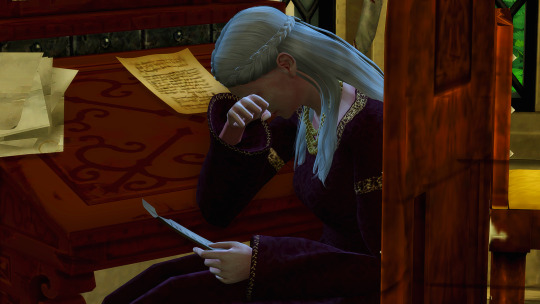
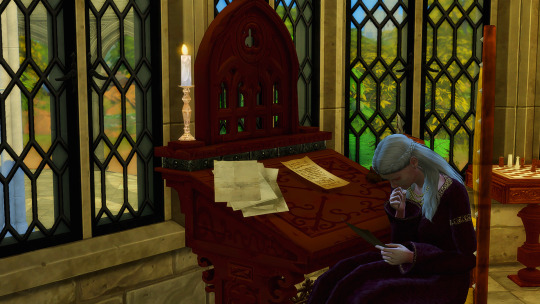


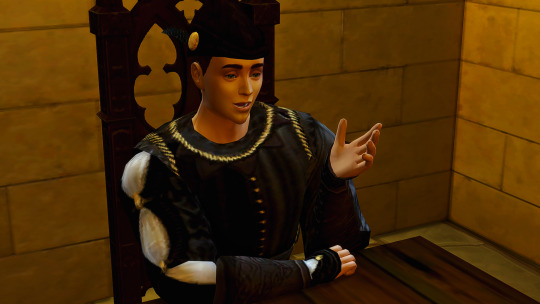

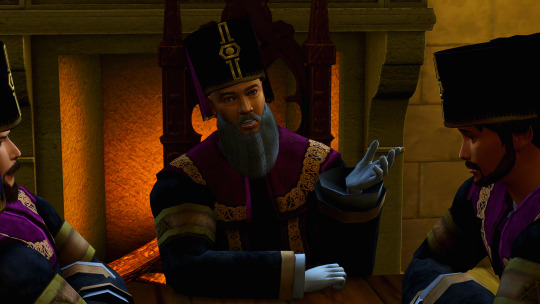



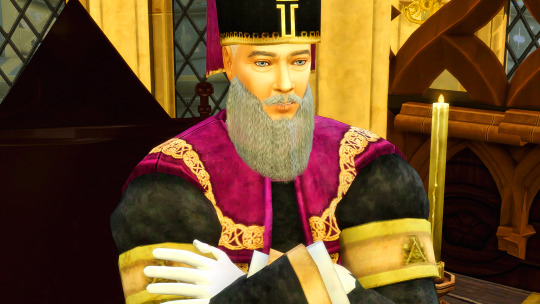
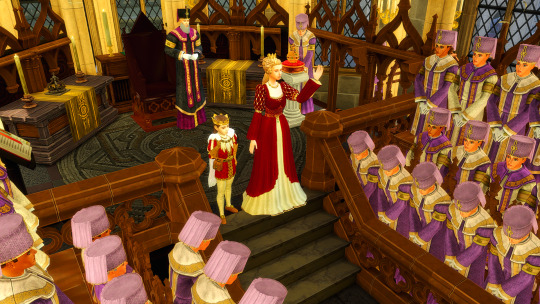
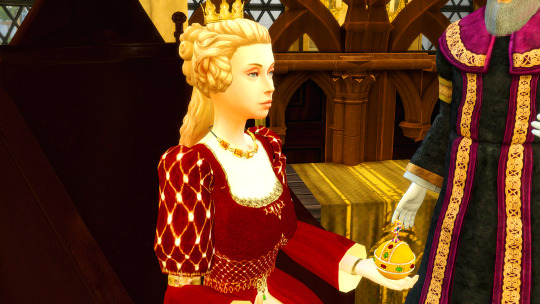
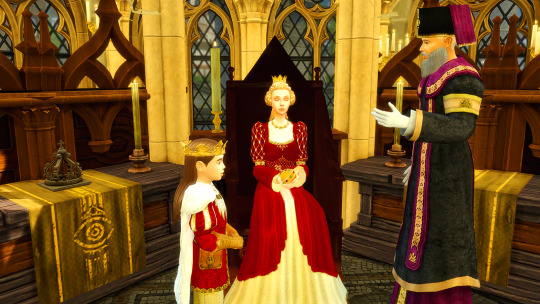

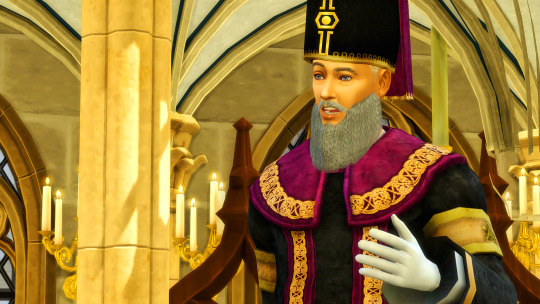
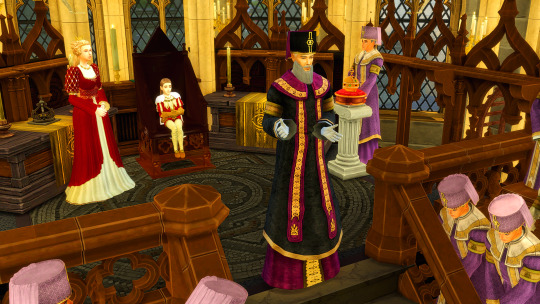

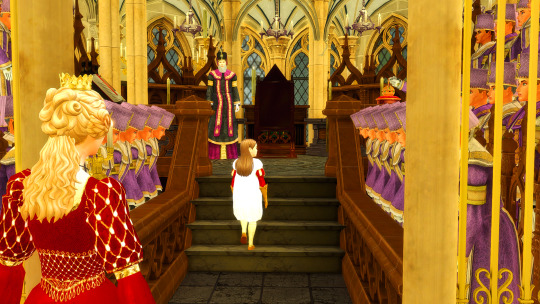

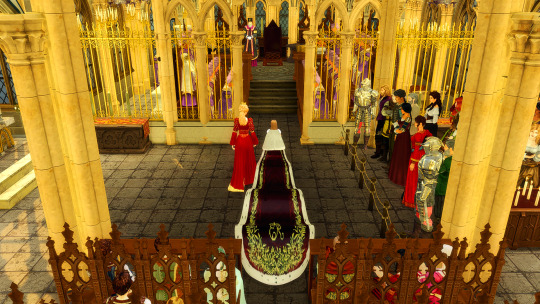






In the months that followed King Wilhelm's demise, Windenburg seemed to be on a brighter path. One morning, King Edward called for an audience at The Tower of Windenburg, and the crowds gathered eagerly, their eyes filled with anticipation. At only 12 years old, King Edward wasn't even tall enough to reach the podium, so he stood on books to make himself appear taller. He was flanked by his mother, Dowager Queen Cordelia, who stood with a sense of quiet pride.
As the young king prepared to speak, there was a hush that fell over the crowd. Edward's voice, though young, carried a weight of authority and determination. "In a time of crisis, we must show compassion and resolve. Thus, I announced the conversion of The Tower of Windenburg and The Palace of Westsimster into infirmaries for those afflicted by the plague. Furthermore, I pledged to hire 1500 new plague doctors to aid in this dire hour. My vow is to protect my people, not to condemn them. Through employing more doctors and fostering care, we witness the slow return of hope as our afflicted brethren begin to mend." Edward stated. He employed more doctors, and slowly, people started to get better. The plague had seemingly run its course, though many people had died, it seemed that no one new was getting infected.
By summer, traces of the virus had vanished, and many of the traveling plague doctors went on their way. The streets of Windenburg were bustling with life once more, and the people rejoiced in the newfound sense of hope and optimism. King Edward's swift and decisive actions had not only saved countless lives but had also restored faith in the monarchy. The young king's compassion and determination had proven that age was no barrier to leadership, and his reign was marked by a sense of unity and progress.
On the fifth day of summer, 1350, crowds gathered around Westsimster Abbey for the coronation of King Edward. The Abbey was heavily guarded, and only nobles and a handful of lucky citizens were allowed to attend the ceremony. Edward, dressed in his finest clothes and wearing his custom-knit coronation robe that was 9 feet in length, walked beside his mother, Cordelia, toward the coronation chair. The robe trailed behind him as he moved, a symbol of the weight of the crown he was about to bear.
As they approached the coronation chair, Cordelia helped her son remove the robe, her hands trembling slightly with the weight of the moment. She looked at Edward, her heart filled with a mixture of pride and fear. Pride for the son who was about to become king, and fear for the challenges that lay ahead. "He is but a mere child," she thought to herself, her mind racing with worry.
"As my son ascends the throne, I can't help but fear the weight of the crown upon his young shoulders," Cordelia whispered to herself, her voice barely audible over the murmurs of the crowd. "Will he be strong enough to withstand the challenges that lie ahead?" Her mind was clouded with uncertainty, and she couldn't shake the feeling of foreboding that lingered in the air.
Edward sat in the coronation chair, a place where many of his ancestors had also sat before him, and waited for the crowning to begin. The High Priest of the Jacoban Church, Paul Leudemond, would be conducting the ceremony, despite his biases. Facing the crowd, Paul began his speech.
"Your Majesty, esteemed nobles, and beloved citizens of Windenburg, today marks a significant moment in our history. We gather to witness the coronation of King Edward, a young ruler who, despite his tender age, has shown remarkable wisdom and courage. As the high priest of the Jacoban church, it is my honor to preside over this sacred ceremony and to bestow upon our young king the blessings of our faith. Let us begin."
"I am here to affirm that Edward is not merely ascending to the throne by birthright, but by divine will. The Jacoban faith has long held that kings are chosen by the grace of the Almighty, and in Edward, we see a beacon of hope for our kingdom."
After saying a prayer to St. Jacob and anointing the new king, Paul placed the crown upon Edward's head, and everyone in the building bowed before their new king. Following that, Edward stood up to the side, and Cordelia was guided to the chair. Paul placed the Imperial Orb of Windenburg in Cordelia's hand and stated , "Your Majesty, it is my duty to present you with the imperial orb of Windenburg, a symbol of your regency. However, I must also remind you that this orb is not yours to keep. It is a temporary token of authority, entrusted to you until King Edward comes of age."
"I trust you are aware of the weight of this responsibility. You are not the rightful ruler of Windenburg, and your reign is but a temporary measure. I urge you to remember that, as you hold this orb, you are merely a steward of the throne, not its true sovereign. It is my fervent hope that you will fulfill your promise to relinquish the throne to King Edward on his 18th birthday. Your Majesty, I implore you to set aside any personal ambitions and act in the best interests of our kingdom."
Cordelia held the orb out in her hand and stated, "I vow to uphold the regency of Windenburg with unwavering dedication, ensuring the prosperity and well-being of our kingdom. I pledge to guide and nurture King Edward, preparing him for the responsibilities of the throne. On his 18th birthday, I will gracefully relinquish the regency, allowing him to ascend as the rightful king of Windenburg. Until that day, I will serve as a steadfast protector of our realm, honoring the trust placed in me by our people."
After that, Cordelia stood up, and both of them headed towards the crowd, stopping on the ledge to wave as many monarchs have traditionally. Behind them stood Paul, a look of resentment on his face. He would do anything within his power to remove Cordelia from her position. The crowds roared as Edward and Cordelia exited the Abbey, parties in the streets broke out, the people were overjoyed by their new King, despite his age.
Back at The Parish of St. Jacob, the Jacoban clergy met again in secrecy to discuss their plans of ambush. Paul, with a solemn expression, addressed the gathered clergy. "My brethren, the ascension of King Edward, a mere boy, and the regency of Queen Cordelia, a woman of Bagley blood, are affronts to our faith and to the very fabric of our society. It is an insult to the Jacoban church and to the traditions that have guided our kingdom for centuries."
Paul then turned his gaze to a guest he had called to the meeting, Lord Richard of Windenburg, the current King's first cousin once removed. "Your Grace," Paul addressed him, "The regency of Cordelia is a blight upon our kingdom, a threat to the very fabric of our society. We cannot allow her to continue to wield power unchecked. We must take decisive action to protect the sanctity of our kingdom and to ensure that King Edward is guided by the true principles of our faith."
Richard, with a furrowed brow, listened intently. He knew that the Jacoban clergy were prepared to go to great lengths to achieve their goals, and he was prepared to do whatever it took to protect the kingdom. "Your Holiness," he replied, "I understand the urgency of the situation. Cordelia's regency poses a significant threat to the stability of our kingdom, and we cannot afford to let her continue to wield power unchecked. I am prepared to do whatever it takes to protect the kingdom and to ensure that King Edward is guided by the true principles of our faith."
"As for Cordelia," Richard continued, "I propose a swift and covert operation. We'll stage the ambush when she's least expecting it, perhaps during a royal procession or a visit to a remote estate. The goal is to take her into custody without causing a scene, ensuring she's held in a secure location away from the influence of the crown. As for her fate, I advocate for keeping her alive but in captivity. Killing her would only escalate the situation and lead to further unrest. By keeping her isolated, we can neutralize her influence while avoiding unnecessary bloodshed."
Paul and Richard rose from their seats, their hands meeting in a firm handshake, a silent agreement passing between them. Their eyes held a steely determination, knowing that the ambush they planned would soon be set into motion. With a shared nod, they reaffirmed their commitment to the cause, understanding the weight of their decision and the consequences that lay ahead.
In Tartosa, the aging Dowager Queen Margaery of Windenburg sat in her chambers at Thebe Castle, a sense of nostalgia and longing filling the air. She sifted through the letters and correspondence that had arrived from overseas, her heart heavy with the weight of the past. The news from Lady Dorothea, a trusted confidante, struck her like a bolt of lightning. King Wilhelm V, her son, had passed away. Margaery's hands trembled as she read the words, her mind racing with memories of her son's troubled reign.
As she absorbed the news, a mixture of emotions washed over her. Grief for her son's passing mingled with a profound sense of relief. For years, she had borne the burden of his actions, the weight of his tyranny. Now, with his demise, she felt a weight lifted from her shoulders, a newfound freedom she hadn't experienced in decades.
Margaery's thoughts turned to her daughter, Empress Mary, who was unaware of the news. She called for Mary to join her, the urgency in her voice evident. As Mary entered the room, Margaery's eyes met hers, filled with a mix of sorrow and resolve.
"My dearest Mary," Margaery began, her voice trembling with emotion. "I have received news that will change our lives forever. King Wilhelm, your brother, has passed away. While I am stricken with grief for his loss, I also feel a sense of relief. For so long, I have carried the weight of his actions, the burden of his reign. Now, with his passing, I am free from the shackles of his tyranny."
Mary listened in stunned silence, her mind reeling from the news. She had not seen her brother in years, nor had she witnessed the turmoil of his rule. Her memories of him were from their childhood, a time when they were close and carefree.
Margaery continued, her voice filled with determination. "This moment marks a new beginning for me. For thirty long years, I have been estranged from our family in Windenburg. It is time for me to return home, to mend the rifts that have divided us, and to reconnect with our loved ones. Would you accompany me, my dear Mary? Let us reclaim our rightful place in the embrace of our family."
Mary's heart swelled with a mix of emotions as she looked at her mother. She knew that this journey would not be easy, but she also knew that it was necessary. With a nod, she replied, "Yes, Mother. I will accompany you. Let us begin this journey together, to heal the wounds of the past and forge a new future for our family."
#simsmedieval#royalsims#windenburg#sims4#royal#sims#gameofthrones#royalty#thesimsmedieval#simsstory#legacy challenge#sim legacy#ts4 legacy#sims 4 legacy#ts4 decades challenge#ultimate decades challenge#sims 4 decades#decades legacy#medieval#royal simblr#royalsim#royalty sims#royal fashion#tower of london#windenburg castle#tartosa#ts4#simblr#sims 4#sims 4 screenshots
51 notes
·
View notes
Text
King Edward





























In the months that followed King Wilhelm's demise, Windenburg seemed to be on a brighter path. One morning, King Edward called for an audience at The Tower of Windenburg, and the crowds gathered eagerly, their eyes filled with anticipation. At only 12 years old, King Edward wasn't even tall enough to reach the podium, so he stood on books to make himself appear taller. He was flanked by his mother, Dowager Queen Cordelia, who stood with a sense of quiet pride.
As the young king prepared to speak, there was a hush that fell over the crowd. Edward's voice, though young, carried a weight of authority and determination. "In a time of crisis, we must show compassion and resolve. Thus, I announced the conversion of The Tower of Windenburg and The Palace of Westsimster into infirmaries for those afflicted by the plague. Furthermore, I pledged to hire 1500 new plague doctors to aid in this dire hour. My vow is to protect my people, not to condemn them. Through employing more doctors and fostering care, we witness the slow return of hope as our afflicted brethren begin to mend." Edward stated. He employed more doctors, and slowly, people started to get better. The plague had seemingly run its course, though many people had died, it seemed that no one new was getting infected.
By summer, traces of the virus had vanished, and many of the traveling plague doctors went on their way. The streets of Windenburg were bustling with life once more, and the people rejoiced in the newfound sense of hope and optimism. King Edward's swift and decisive actions had not only saved countless lives but had also restored faith in the monarchy. The young king's compassion and determination had proven that age was no barrier to leadership, and his reign was marked by a sense of unity and progress.
On the fifth day of summer, 1350, crowds gathered around Westsimster Abbey for the coronation of King Edward. The Abbey was heavily guarded, and only nobles and a handful of lucky citizens were allowed to attend the ceremony. Edward, dressed in his finest clothes and wearing his custom-knit coronation robe that was 9 feet in length, walked beside his mother, Cordelia, toward the coronation chair. The robe trailed behind him as he moved, a symbol of the weight of the crown he was about to bear.
As they approached the coronation chair, Cordelia helped her son remove the robe, her hands trembling slightly with the weight of the moment. She looked at Edward, her heart filled with a mixture of pride and fear. Pride for the son who was about to become king, and fear for the challenges that lay ahead. "He is but a mere child," she thought to herself, her mind racing with worry.
"As my son ascends the throne, I can't help but fear the weight of the crown upon his young shoulders," Cordelia whispered to herself, her voice barely audible over the murmurs of the crowd. "Will he be strong enough to withstand the challenges that lie ahead?" Her mind was clouded with uncertainty, and she couldn't shake the feeling of foreboding that lingered in the air.
Edward sat in the coronation chair, a place where many of his ancestors had also sat before him, and waited for the crowning to begin. The High Priest of the Jacoban Church, Paul Leudemond, would be conducting the ceremony, despite his biases. Facing the crowd, Paul began his speech.
"Your Majesty, esteemed nobles, and beloved citizens of Windenburg, today marks a significant moment in our history. We gather to witness the coronation of King Edward, a young ruler who, despite his tender age, has shown remarkable wisdom and courage. As the high priest of the Jacoban church, it is my honor to preside over this sacred ceremony and to bestow upon our young king the blessings of our faith. Let us begin."
"I am here to affirm that Edward is not merely ascending to the throne by birthright, but by divine will. The Jacoban faith has long held that kings are chosen by the grace of the Almighty, and in Edward, we see a beacon of hope for our kingdom."
After saying a prayer to St. Jacob and anointing the new king, Paul placed the crown upon Edward's head, and everyone in the building bowed before their new king. Following that, Edward stood up to the side, and Cordelia was guided to the chair. Paul placed the Imperial Orb of Windenburg in Cordelia's hand and stated , "Your Majesty, it is my duty to present you with the imperial orb of Windenburg, a symbol of your regency. However, I must also remind you that this orb is not yours to keep. It is a temporary token of authority, entrusted to you until King Edward comes of age."
"I trust you are aware of the weight of this responsibility. You are not the rightful ruler of Windenburg, and your reign is but a temporary measure. I urge you to remember that, as you hold this orb, you are merely a steward of the throne, not its true sovereign. It is my fervent hope that you will fulfill your promise to relinquish the throne to King Edward on his 18th birthday. Your Majesty, I implore you to set aside any personal ambitions and act in the best interests of our kingdom."
Cordelia held the orb out in her hand and stated, "I vow to uphold the regency of Windenburg with unwavering dedication, ensuring the prosperity and well-being of our kingdom. I pledge to guide and nurture King Edward, preparing him for the responsibilities of the throne. On his 18th birthday, I will gracefully relinquish the regency, allowing him to ascend as the rightful king of Windenburg. Until that day, I will serve as a steadfast protector of our realm, honoring the trust placed in me by our people."
After that, Cordelia stood up, and both of them headed towards the crowd, stopping on the ledge to wave as many monarchs have traditionally. Behind them stood Paul, a look of resentment on his face. He would do anything within his power to remove Cordelia from her position. The crowds roared as Edward and Cordelia exited the Abbey, parties in the streets broke out, the people were overjoyed by their new King, despite his age.
Back at The Parish of St. Jacob, the Jacoban clergy met again in secrecy to discuss their plans of ambush. Paul, with a solemn expression, addressed the gathered clergy. "My brethren, the ascension of King Edward, a mere boy, and the regency of Queen Cordelia, a woman of Bagley blood, are affronts to our faith and to the very fabric of our society. It is an insult to the Jacoban church and to the traditions that have guided our kingdom for centuries."
Paul then turned his gaze to a guest he had called to the meeting, Lord Richard of Windenburg, the current King's first cousin once removed. "Your Grace," Paul addressed him, "The regency of Cordelia is a blight upon our kingdom, a threat to the very fabric of our society. We cannot allow her to continue to wield power unchecked. We must take decisive action to protect the sanctity of our kingdom and to ensure that King Edward is guided by the true principles of our faith."
Richard, with a furrowed brow, listened intently. He knew that the Jacoban clergy were prepared to go to great lengths to achieve their goals, and he was prepared to do whatever it took to protect the kingdom. "Your Holiness," he replied, "I understand the urgency of the situation. Cordelia's regency poses a significant threat to the stability of our kingdom, and we cannot afford to let her continue to wield power unchecked. I am prepared to do whatever it takes to protect the kingdom and to ensure that King Edward is guided by the true principles of our faith."
"As for Cordelia," Richard continued, "I propose a swift and covert operation. We'll stage the ambush when she's least expecting it, perhaps during a royal procession or a visit to a remote estate. The goal is to take her into custody without causing a scene, ensuring she's held in a secure location away from the influence of the crown. As for her fate, I advocate for keeping her alive but in captivity. Killing her would only escalate the situation and lead to further unrest. By keeping her isolated, we can neutralize her influence while avoiding unnecessary bloodshed."
Paul and Richard rose from their seats, their hands meeting in a firm handshake, a silent agreement passing between them. Their eyes held a steely determination, knowing that the ambush they planned would soon be set into motion. With a shared nod, they reaffirmed their commitment to the cause, understanding the weight of their decision and the consequences that lay ahead.
In Tartosa, the aging Dowager Queen Margaery of Windenburg sat in her chambers at Thebe Castle, a sense of nostalgia and longing filling the air. She sifted through the letters and correspondence that had arrived from overseas, her heart heavy with the weight of the past. The news from Lady Dorothea, a trusted confidante, struck her like a bolt of lightning. King Wilhelm V, her son, had passed away. Margaery's hands trembled as she read the words, her mind racing with memories of her son's troubled reign.
As she absorbed the news, a mixture of emotions washed over her. Grief for her son's passing mingled with a profound sense of relief. For years, she had borne the burden of his actions, the weight of his tyranny. Now, with his demise, she felt a weight lifted from her shoulders, a newfound freedom she hadn't experienced in decades.
Margaery's thoughts turned to her daughter, Empress Mary, who was unaware of the news. She called for Mary to join her, the urgency in her voice evident. As Mary entered the room, Margaery's eyes met hers, filled with a mix of sorrow and resolve.
"My dearest Mary," Margaery began, her voice trembling with emotion. "I have received news that will change our lives forever. King Wilhelm, your brother, has passed away. While I am stricken with grief for his loss, I also feel a sense of relief. For so long, I have carried the weight of his actions, the burden of his reign. Now, with his passing, I am free from the shackles of his tyranny."
Mary listened in stunned silence, her mind reeling from the news. She had not seen her brother in years, nor had she witnessed the turmoil of his rule. Her memories of him were from their childhood, a time when they were close and carefree.
Margaery continued, her voice filled with determination. "This moment marks a new beginning for me. For thirty long years, I have been estranged from our family in Windenburg. It is time for me to return home, to mend the rifts that have divided us, and to reconnect with our loved ones. Would you accompany me, my dear Mary? Let us reclaim our rightful place in the embrace of our family."
Mary's heart swelled with a mix of emotions as she looked at her mother. She knew that this journey would not be easy, but she also knew that it was necessary. With a nod, she replied, "Yes, Mother. I will accompany you. Let us begin this journey together, to heal the wounds of the past and forge a new future for our family."
#simsmedieval#royalsims#windenburg#sims4#royal#sims#gameofthrones#royalty#thesimsmedieval#simsstory#legacy challenge#sim legacy#ts4 legacy#sims 4 legacy#ts4 decades challenge#ultimate decades challenge#sims 4 decades#decades legacy#medieval#royal simblr#royalsim#royalty sims#royal fashion#tower of london#windenburg castle#tartosa#ts4#simblr#sims 4#sims 4 screenshots
51 notes
·
View notes
Text
Amidst the echoes of a fallen king, the rise of a young monarch, and the shadow of a regent's reign, Windenburg's fate hangs in a delicate balance, poised between the legacy of the past and the promise of a brighter future.
NEW POST COMING TOMORROW AT 11AM EST ! STAY TUNED ♚
The Black Death: Part 6

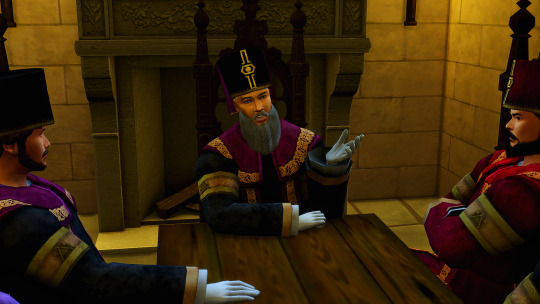








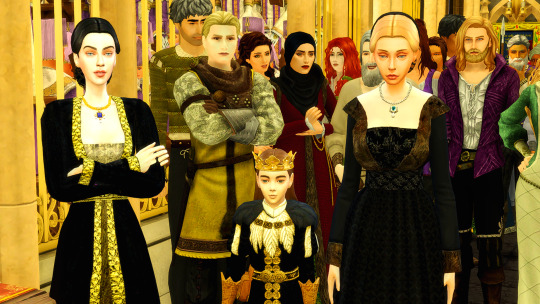
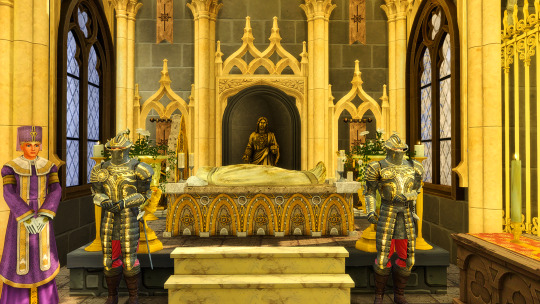
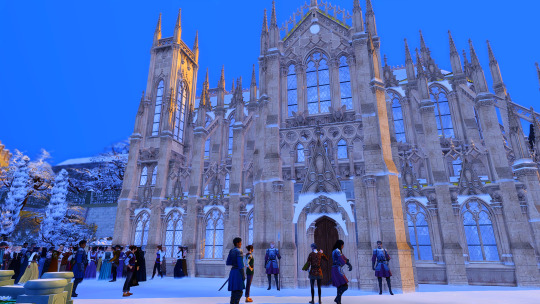
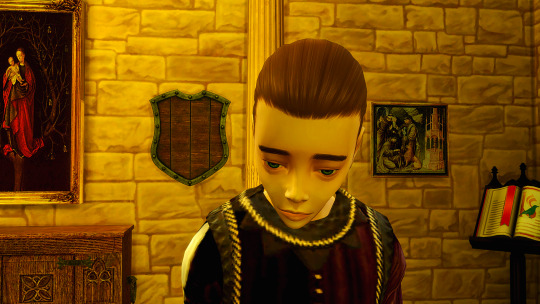

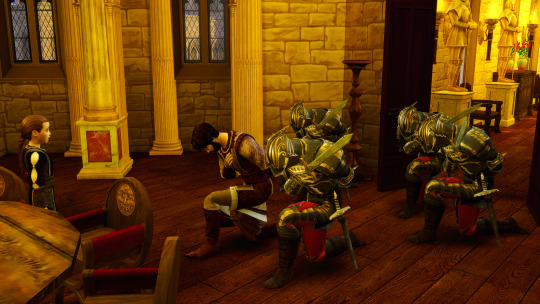


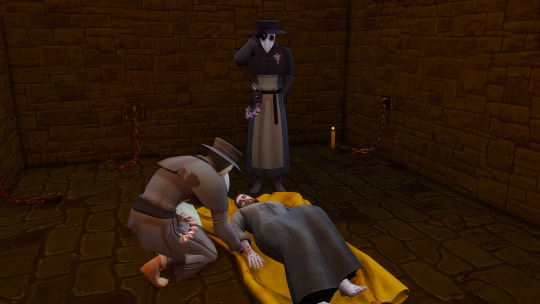
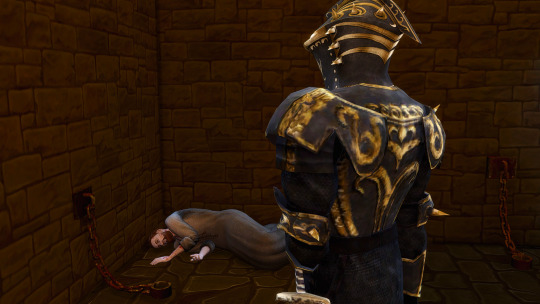

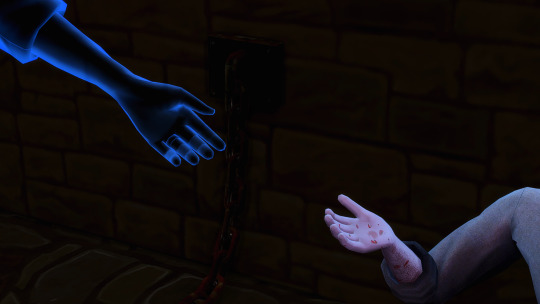

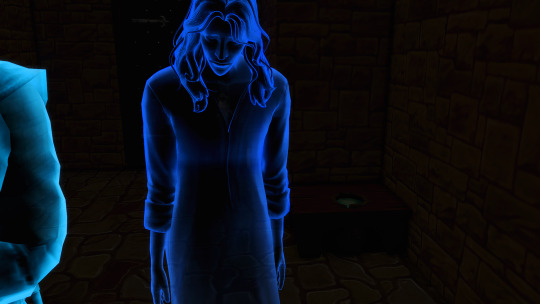
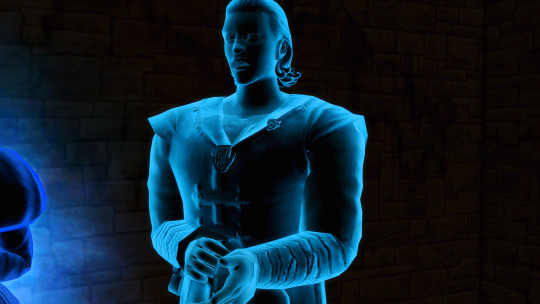


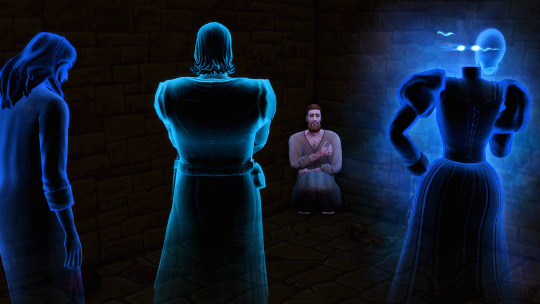

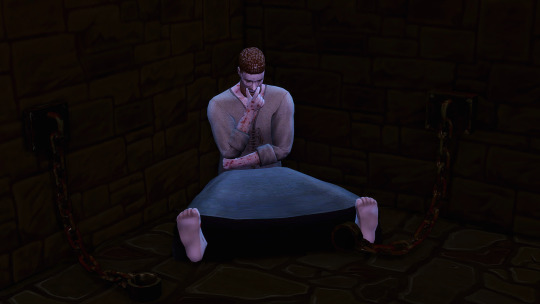
On the fifth night of Wilhelm's confinement within the dungeon, he had become extremely ill. Boils covered his pale, sickly body as he sat feebly in the corner of the cold stone room. In his final moments, he looked up and couldn't believe his eyes. Before him stood three spirits—the ghost of his late wife Fiona, her severed head floating in front of her body, clearly enraged. She looked to Wilhelm and said, "You thought death would spare you from the consequences of your malevolence, Wilhelm. Your cruelty did not die with me; it festered and grew in the heart of our daughter, whom you callously mistreated after my passing. You dared to execute me when our child was but a tender three years old, denying her a mother's love and subjecting her to the darkness you embody. Your reign was built on the foundation of my demise, but now, in death, I return to witness your kingdom crumble and your soul wither in eternal torment. The suffering you've sown will be your only legacy."
Wilhelm looked blankly at the spirits, unable to fathom what he saw before his eyes. Before he could respond, the spirit of his father, King Wilhelm IV, interrupted, "Wilhelm, my son, you may have taken my crown 29 years ago, lifting the burden that weighed heavily upon me. Yet, as I gaze upon the path you've chosen, my heart is heavy with disappointment. The legacy you've crafted is one of cruelty and callousness, and in your pursuit of power, you've lost the essence of true kingship. May you find redemption in the afterlife, for your deeds have left a stain on the very realm you were meant to protect."
Finally, the sad spirit of King Wilhelm's dear uncle Arthur stood before him, bearing a somber expression. Arthur extended his hand to his nephew, and Wilhelm reached up to him.
The following morning, as the guards were doing their rounds, they saw that Wilhelm had met his demise, lying lifeless on the cold stone floor, covered in markings of the plague. The plague doctors were called to collect the King's body and deliver it to Westsimster Abbey. They wrapped him in a thick blanket and sealed it with wax to prevent further infection. Meanwhile, upstairs in the castle, Cordelia, Augusta, and Prince Wilhelm sat in their chamber reminiscing. Suddenly, the doors flung open, and guards poured in, accompanied by Sir Oliver Coles, the King's advisor. He was holding a note which he immediately read out to the family.
"It is with deep sorrow that we announce the passing of our sovereign, King Wilhelm V, who reigned over Windenburg from the year 1320 until his demise today, on the 4th day of winter, 1349. In mourning his loss, we reflect on the challenges faced during his rule. With the final toll of the bell, we bid farewell to a dark chapter in our history."
Oliver and the guards looked to the young Prince Wilhelm and bowed before him, stating, "The king is dead, long live the king." Wilhelm was blown away by this news; he couldn't believe his ears. Now at only 11 years old, he would have to rule a kingdom. Cordelia was shocked upon hearing the news, and sadness overcame her, more so for the lost potential in her late husband, now consumed by death's final grasp. Yet, Augusta was clearly overjoyed by this. The young King looked down to his guards in disbelief, knowing the weight that has been thrust upon him and the struggles he was bound to face.
On the morning of the 6th day of winter, crowds gathered around Westsimster Abbey for the funeral of King Wilhelm V. Many couldn't believe he was really dead. Wilhelm's body was placed on the altar that held many of his ancestors before him, guarded by two men. The young King, his mother Dowager Queen Cordelia, and his half-sister Augusta stood off to the side, staring in disbelief at the body. The King walked up to the altar and stood before the mass of citizens.
"Good people of Windenburg, Today, we gather not just to mourn the passing of a king but to acknowledge the pain caused by a chapter in our history. My father, King Wilhelm, ruled with a heavy hand, and the consequences of his actions weigh heavily on our hearts. I stand before you, not only as the heir to the throne but as a son who witnessed the suffering of our people.
In the wake of my father's tyranny, I extend a heartfelt apology to each one of you. The darkness that shrouded Windenburg under his rule will not define our future. It is my solemn promise to rebuild this kingdom, to mend the wounds inflicted upon it, and to restore the prosperity that once graced our land. To guide us in this journey, I advocate for the regency of my mother, Queen Cordelia. Her wisdom, compassion, and unwavering love for Windenburg make her the beacon of hope we desperately need. Under her leadership, I believe we can forge a new era—a chapter marked not by oppression but by unity, justice, and prosperity. Henceforth, I choose to be known as King Edward, taking my second name as a regnal name—a symbol of breaking free from the shadows of the past. No longer shall our kings be shackled by the mistakes of their predecessors. I aspire to rebuild Windenburg, not as an echo of the past, but as a beacon of hope for a brighter future."
With those words, King Edward concluded his address, his voice echoing through the abbey. The crowd remained silent for a moment, absorbing the weight of his words, before erupting into applause. They knew that they had a king who would lead them with compassion and determination, a king who would guide them through the challenges ahead. In the back of the crowd stood a group of religious figures, members of the Jacoban clergy, stood with anger etched upon their faces. Back at the Parish of St. Jacob, Paul Leudemond, the high priest of the Jacoban church, was particularly vocal in his opposition. He argued that Cordelia's regency would lead to a weakening of the kingdom, as it would undermine the authority of the king. He proposed that Richard, the late King Wilhelm's cousin and a staunch supporter of the Jacoban faith, be appointed as lord protector of King Edward. This move, he believed, would ensure the continued dominance of the Jacoban church and restore order to Windenburg.
"The appointment of a woman as regent is a grave mistake," Leudemond declared, his voice echoing with conviction. "It threatens to unravel the very fabric of our society. We cannot allow a woman, especially one of Bagley blood, to wield such power. It goes against the natural order of things."
Leudemond's words were met with murmurs of agreement from the clergy gathered around him. They nodded in unison, their expressions reflecting a shared sense of urgency and determination.
"We must act swiftly to rectify this situation," Leudemond continued, his tone growing more impassioned. "We cannot allow Cordelia to undermine the authority of the king. We must appoint Richard as lord protector of King Edward. He is a man of strong Jacoban faith, and he will ensure that our traditions and values are upheld."
The clergy listened intently, their eyes fixed on Leudemond as he spoke. They knew that their plan was bold, but they were willing to take the risk. They were prepared to challenge the authority of the crown in order to safeguard the future of Windenburg and the Jacoban church.
#simsmedieval#royalsims#windenburg#sims4#royal#sims#gameofthrones#royalty#thesimsmedieval#simsstory#simmer#simblr#historical sims#royalty sims#sim legacy#sims 4#sims 4 gameplay#sims 4 cc#sims 4 screenshots#the sims#my sims#sims screenshots#the sims 4#historicalsims#history#histoire#historical#ts4#the sims medieval#medieval
41 notes
·
View notes
Text
The Black Death: Part 6






























On the fifth night of Wilhelm's confinement within the dungeon, he had become extremely ill. Boils covered his pale, sickly body as he sat feebly in the corner of the cold stone room. In his final moments, he looked up and couldn't believe his eyes. Before him stood three spirits—the ghost of his late wife Fiona, her severed head floating in front of her body, clearly enraged. She looked to Wilhelm and said, "You thought death would spare you from the consequences of your malevolence, Wilhelm. Your cruelty did not die with me; it festered and grew in the heart of our daughter, whom you callously mistreated after my passing. You dared to execute me when our child was but a tender three years old, denying her a mother's love and subjecting her to the darkness you embody. Your reign was built on the foundation of my demise, but now, in death, I return to witness your kingdom crumble and your soul wither in eternal torment. The suffering you've sown will be your only legacy."
Wilhelm looked blankly at the spirits, unable to fathom what he saw before his eyes. Before he could respond, the spirit of his father, King Wilhelm IV, interrupted, "Wilhelm, my son, you may have taken my crown 29 years ago, lifting the burden that weighed heavily upon me. Yet, as I gaze upon the path you've chosen, my heart is heavy with disappointment. The legacy you've crafted is one of cruelty and callousness, and in your pursuit of power, you've lost the essence of true kingship. May you find redemption in the afterlife, for your deeds have left a stain on the very realm you were meant to protect."
Finally, the sad spirit of King Wilhelm's dear uncle Arthur stood before him, bearing a somber expression. Arthur extended his hand to his nephew, and Wilhelm reached up to him.
The following morning, as the guards were doing their rounds, they saw that Wilhelm had met his demise, lying lifeless on the cold stone floor, covered in markings of the plague. The plague doctors were called to collect the King's body and deliver it to Westsimster Abbey. They wrapped him in a thick blanket and sealed it with wax to prevent further infection. Meanwhile, upstairs in the castle, Cordelia, Augusta, and Prince Wilhelm sat in their chamber reminiscing. Suddenly, the doors flung open, and guards poured in, accompanied by Sir Oliver Coles, the King's advisor. He was holding a note which he immediately read out to the family.
"It is with deep sorrow that we announce the passing of our sovereign, King Wilhelm V, who reigned over Windenburg from the year 1320 until his demise today, on the 4th day of winter, 1349. In mourning his loss, we reflect on the challenges faced during his rule. With the final toll of the bell, we bid farewell to a dark chapter in our history."
Oliver and the guards looked to the young Prince Wilhelm and bowed before him, stating, "The king is dead, long live the king." Wilhelm was blown away by this news; he couldn't believe his ears. Now at only 11 years old, he would have to rule a kingdom. Cordelia was shocked upon hearing the news, and sadness overcame her, more so for the lost potential in her late husband, now consumed by death's final grasp. Yet, Augusta was clearly overjoyed by this. The young King looked down to his guards in disbelief, knowing the weight that has been thrust upon him and the struggles he was bound to face.
On the morning of the 6th day of winter, crowds gathered around Westsimster Abbey for the funeral of King Wilhelm V. Many couldn't believe he was really dead. Wilhelm's body was placed on the altar that held many of his ancestors before him, guarded by two men. The young King, his mother Dowager Queen Cordelia, and his half-sister Augusta stood off to the side, staring in disbelief at the body. The King walked up to the altar and stood before the mass of citizens.
"Good people of Windenburg, Today, we gather not just to mourn the passing of a king but to acknowledge the pain caused by a chapter in our history. My father, King Wilhelm, ruled with a heavy hand, and the consequences of his actions weigh heavily on our hearts. I stand before you, not only as the heir to the throne but as a son who witnessed the suffering of our people.
In the wake of my father's tyranny, I extend a heartfelt apology to each one of you. The darkness that shrouded Windenburg under his rule will not define our future. It is my solemn promise to rebuild this kingdom, to mend the wounds inflicted upon it, and to restore the prosperity that once graced our land. To guide us in this journey, I advocate for the regency of my mother, Queen Cordelia. Her wisdom, compassion, and unwavering love for Windenburg make her the beacon of hope we desperately need. Under her leadership, I believe we can forge a new era—a chapter marked not by oppression but by unity, justice, and prosperity. Henceforth, I choose to be known as King Edward, taking my second name as a regnal name—a symbol of breaking free from the shadows of the past. No longer shall our kings be shackled by the mistakes of their predecessors. I aspire to rebuild Windenburg, not as an echo of the past, but as a beacon of hope for a brighter future."
With those words, King Edward concluded his address, his voice echoing through the abbey. The crowd remained silent for a moment, absorbing the weight of his words, before erupting into applause. They knew that they had a king who would lead them with compassion and determination, a king who would guide them through the challenges ahead. In the back of the crowd stood a group of religious figures, members of the Jacoban clergy, stood with anger etched upon their faces. Back at the Parish of St. Jacob, Paul Leudemond, the high priest of the Jacoban church, was particularly vocal in his opposition. He argued that Cordelia's regency would lead to a weakening of the kingdom, as it would undermine the authority of the king. He proposed that Richard, the late King Wilhelm's cousin and a staunch supporter of the Jacoban faith, be appointed as lord protector of King Edward. This move, he believed, would ensure the continued dominance of the Jacoban church and restore order to Windenburg.
"The appointment of a woman as regent is a grave mistake," Leudemond declared, his voice echoing with conviction. "It threatens to unravel the very fabric of our society. We cannot allow a woman, especially one of Bagley blood, to wield such power. It goes against the natural order of things."
Leudemond's words were met with murmurs of agreement from the clergy gathered around him. They nodded in unison, their expressions reflecting a shared sense of urgency and determination.
"We must act swiftly to rectify this situation," Leudemond continued, his tone growing more impassioned. "We cannot allow Cordelia to undermine the authority of the king. We must appoint Richard as lord protector of King Edward. He is a man of strong Jacoban faith, and he will ensure that our traditions and values are upheld."
The clergy listened intently, their eyes fixed on Leudemond as he spoke. They knew that their plan was bold, but they were willing to take the risk. They were prepared to challenge the authority of the crown in order to safeguard the future of Windenburg and the Jacoban church.
#simsmedieval#royalsims#windenburg#sims4#royal#sims#gameofthrones#royalty#thesimsmedieval#simsstory#simmer#simblr#historical sims#royalty sims#sim legacy#sims 4#sims 4 gameplay#sims 4 cc#sims 4 screenshots#the sims#my sims#sims screenshots#the sims 4#historicalsims#history#histoire#historical#ts4#the sims medieval#medieval
41 notes
·
View notes
Text
The Black Death: Part 5

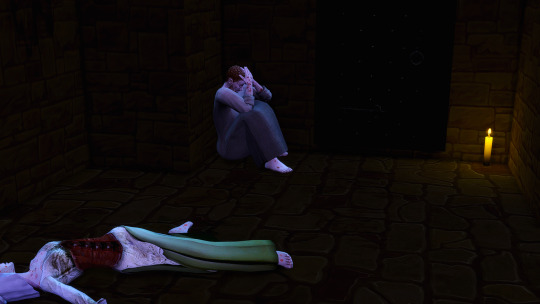


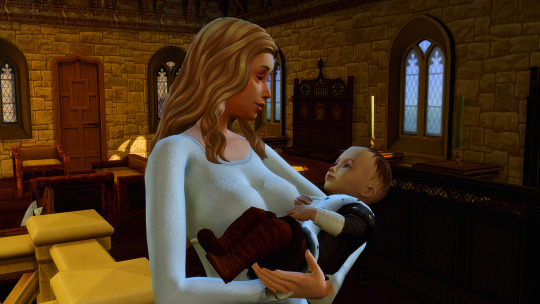
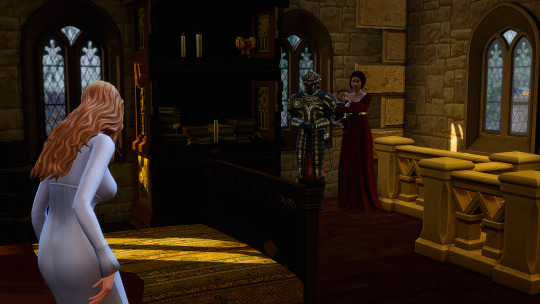



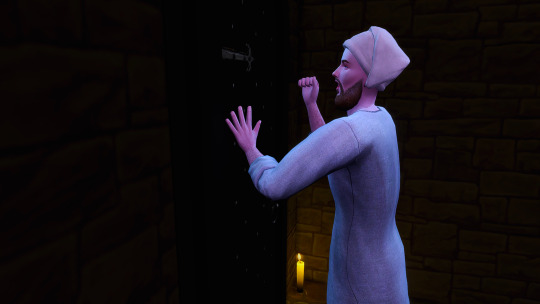
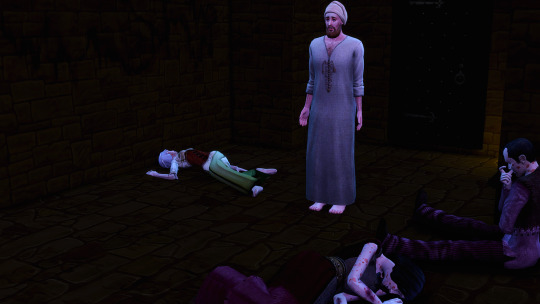

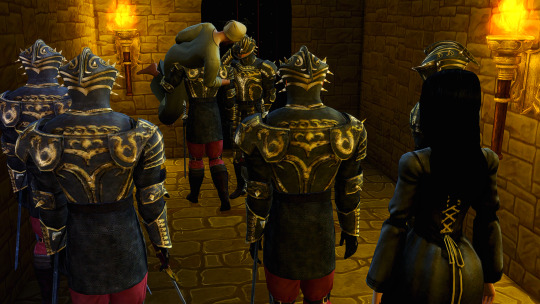



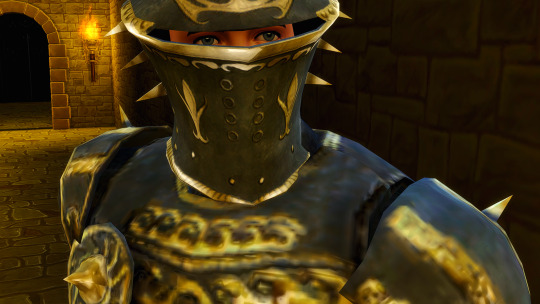


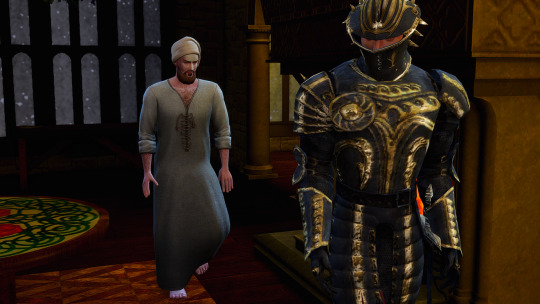
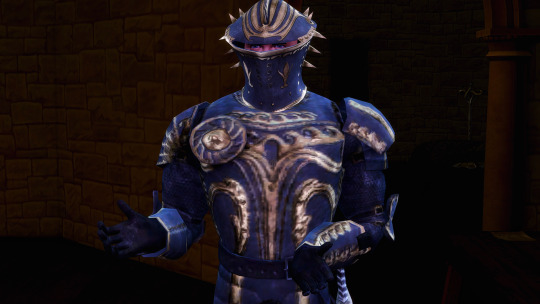




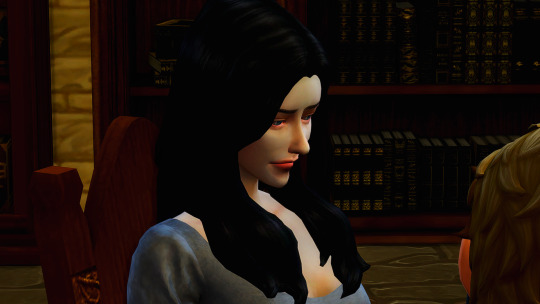
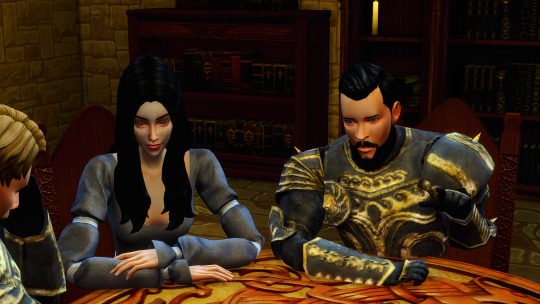


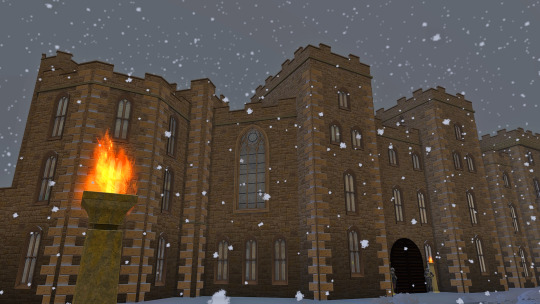
In the subsequent days, the guard meticulously gathered a group of his most trusted men, forming a secret alliance fueled by a shared purpose. True to his promise to Augusta, he orchestrated her discreet release from the confines of the dungeon, providing her sanctuary in the knights' quarters. Seated around a dimly lit table, they convened, plotting the downfall of King Wilhelm. Augusta, her resolve unwavering, proposed a strategic strike during the late hours of the night, precisely when the changing of the guard offered the opportune moment. Unified in purpose, the conspirators collectively acknowledged that this marked the beginning of the end.
Several days later, on a frigid winter morning, King Wilhelm lay ensconced in the warmth of his bedchambers, immersed in a deep slumber. Abruptly, his restful repose was shattered as one of his guards entered with an urgent demeanor. "What is so pressing that it's worth disrupting my slumber?" Wilhelm bellowed, his voice resonating through the chamber. "Your Majesty, I'm deeply sorry to disturb you, but an unsettling breach in security has occurred. We believe there's a threat to your safety within the castle. I urgently request you to accompany me to the knights' quarters; it's the safest location for you," the guard instructed, his expression reflecting genuine concern.
Reluctantly rising from his bed, Wilhelm, gripped by apprehension, followed his guard down the dimly lit hallways, the weight of impending danger hanging heavily in the cold, early morning air.
They traveled through the corridors of the castle, descending into the shadowy depths of the basement. As they entered the dungeon hallway, a gnawing sense of unease crept over Wilhelm. He turned to the guard, agitation evident in his voice. "I thought the knights' quarters were further down the hall. Why have we stopped here?" Wilhelm questioned, his tone laced with frustration. The guard met Wilhelm's gaze, an ominous smile playing on his lips.
"Funny, isn't it, Your Majesty? How the mighty can fall. Your castle, once a symbol of power, is now but a fortress of your own demise."
Before Wilhelm could voice his confusion, one of the cell doors swung open, revealing a formidable assembly of guards, effectively blocking any escape route. Standing among them was his own daughter, Augusta, wearing a smirk that mirrored her newfound resolve.
"What is the meaning of this!?" Wilhelm shouted in a rage.
"The meaning, Father, is the inevitable consequence of your cruelty. Your reign of oppression ends here, and the people you've tormented will finally see justice. These guards have chosen the side of righteousness, and Windenburg will be free from the chains you forged." Wilhelm tried to order the guards to apprehend Augusta, but his influence had diminished, and, in turn, they forcefully restrained him. "Unhand me! I am your King!" Wilhelm desperately shouted. Augusta delivered a final statement to her father, "You hold no kingship over us." With that, the guard forcefully threw Wilhelm into the dark cell, swiftly locking the door behind him.
As the heavy door closed with a resounding thud, sealing Wilhelm within the confines of the dimly lit cell, reality set in. When he turned around, a haunting sight greeted him—the room was filled with the anguished presence of plague-ridden souls, their hollow eyes reflecting the torment of the cruel disease. A palpable sense of terror was etched on Wilhelm's face as he desperately pounded on the unyielding door. "You won't escape the consequences of this, Augusta! I'll make sure you pay for this betrayal. Mark my words!"
Realizing that no one was listening to his desperate pleas, Wilhelm crumbled to the ground, his head in his hands. The weight of his own suffering mirrored the agony he had inflicted upon others. The following morning, Cordelia lay in her chamber, having endured solitude since Wilhelm's last visit. Suddenly, a familiar voice interrupted her solitude, "My lady, forgive the intrusion, but I thought you'd want to know that young Prince Alvin is here. He's missed his mother dearly, and I thought it best to reunite you both."
Cordelia initially believed she was lost in a dream, but as she opened her eyes, the reality before her was as tangible as anything. Positioned by the entrance to her chambers, Cordelia's guard and Lady Philippa stood with Prince Alvin in her arms. Overwhelmed with emotion, Cordelia rushed out of her bed, racing to her son and embracing him tightly. She turned to Lady Philippa, her eyes filled with curiosity, and inquired, "How did you possibly get Wilhelm to agree to this?" Lady Philippa responded with a subtle smile, "His Majesty has been missing since last night, Your Grace. There's no trace of him anywhere." She continued, "I've been asked to escort you to the council chamber; everyone is waiting there, Your Grace."
As Cordelia stepped into the chamber, Prince Wilhelm rushed into her arms, marking the long-awaited reunion of their fractured family. Joy and relief filled the air, enveloping the room in a momentary respite from the shadows that had cast a pall over the kingdom. However, amidst the warmth of familial embrace, an eerie silence lingered, a stark reminder of the absence that loomed over the reunited kin.
In the ensuing days, a gradual decline overcame King Wilhelm. The unmistakable signs of the plague manifested on his weakened form as he sat on the unforgiving cold stone floor. The once-mighty ruler now grappled with a sense of profound loss and despair. The weight of his deeds bore down on him, and the impending specter of his own mortality loomed ever larger.
Locked in the dark chamber, Wilhelm faced the cruel irony of his fate. The same suffering he had inflicted upon others had come full circle to claim him. Each passing moment carried him closer to the precipice of his inevitable demise. In the shadows of the castle that was once his seat of power, Wilhelm confronted the consequences of his actions, and the haunting silence echoed with the reckoning of a ruler who had lost not only his kingdom but also the compassion he had forsaken.
#simsmedieval#royalsims#sims4#windenburg#royal#sims#gameofthrones#thesimsmedieval#royalty#simsstory#simmer#sim legacy#sims 4#simblr#sims 4 cc#historical sims#royalty sims#sims 4 gameplay#sims4cas#ts4 cc#sims 4 screenshots#simdownload#thesims4#legacy challenge#legs#ts4 legacy#sims 4 legacy#historicalsims#historic#historieta
42 notes
·
View notes
Text
The Black Death: Part 4

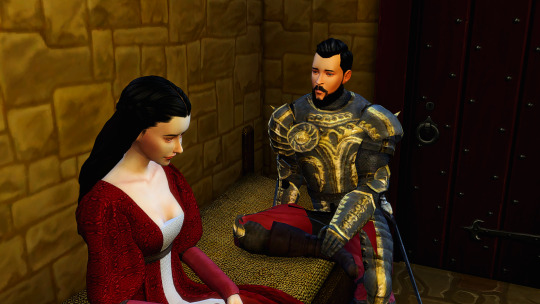
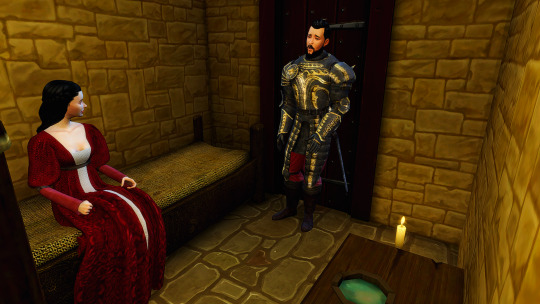
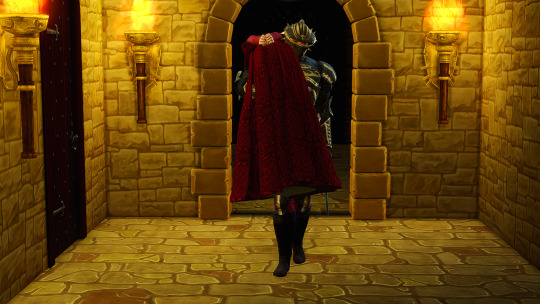
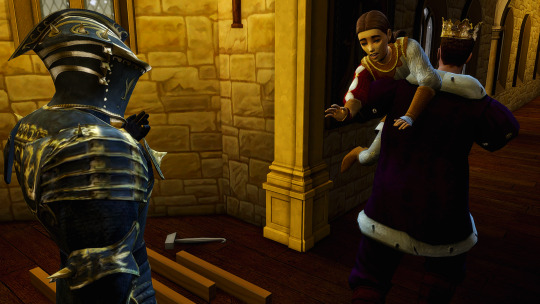
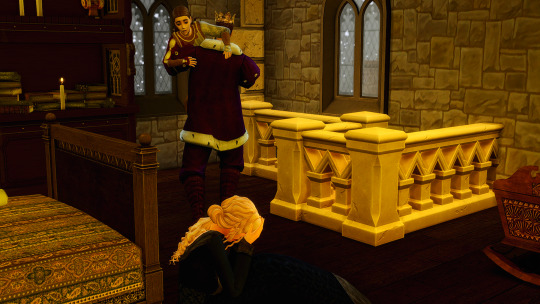
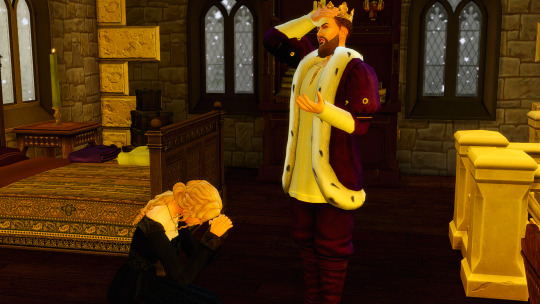


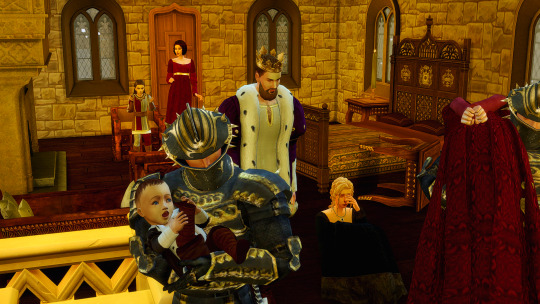

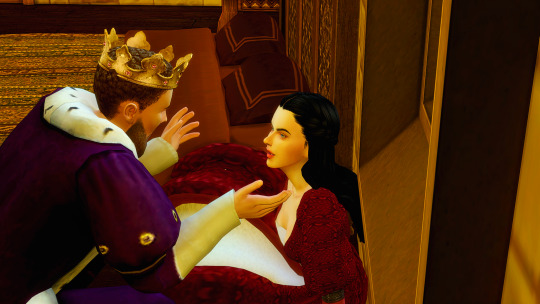

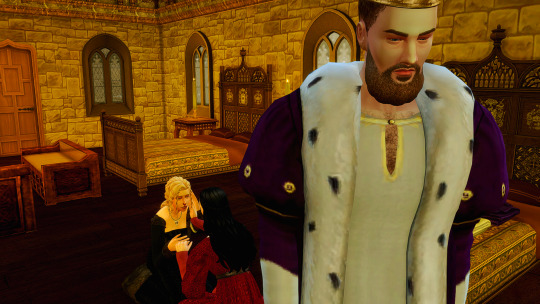




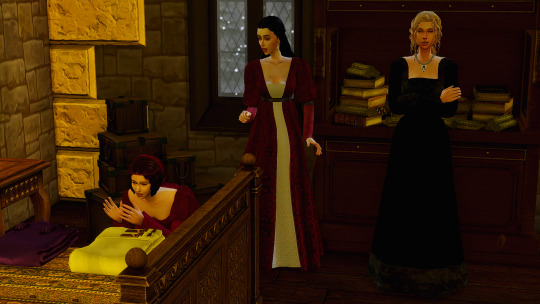


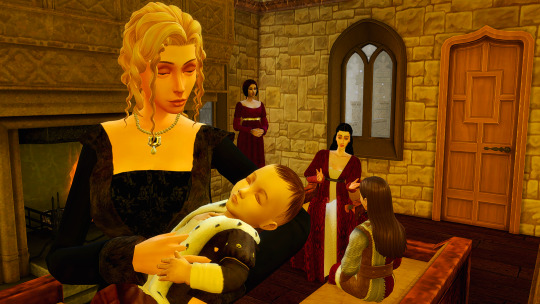


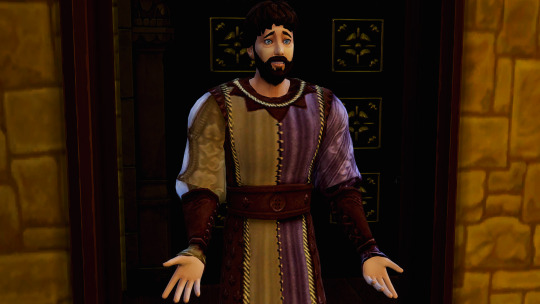

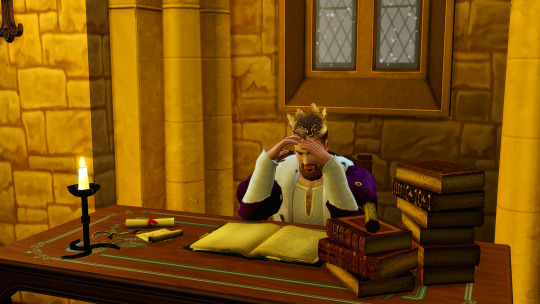

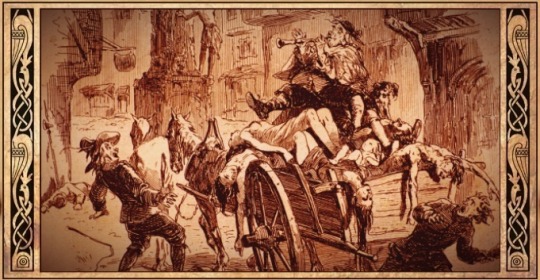
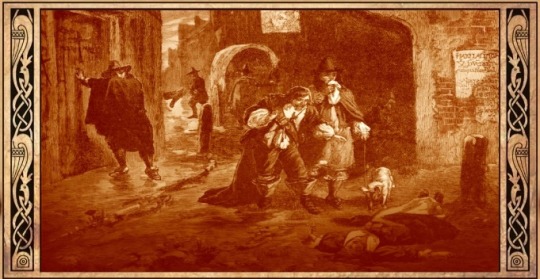
A year has passed since David succumbed to the relentless grip of the plague. Windenburg now stands on the precipice of despair, desperately in need of assistance. More than half of its once-thriving population has perished, leaving behind haunting echoes of life. The streets are eerily silent, with the only signs of movement being the body collectors, the last living presence in a city now dominated by decay and suffering. Westsimster, once a bustling metropolis, now lies almost empty—a haunting testament to the devastating toll exacted by the merciless plague.
Within the walls of Windenburg Castle, a grim atmosphere hung heavy. King Wilhelm, seated in his office, brooded with frustration. The once-thriving farms that supplied the kingdom with grain and livestock now lay in ruin, consumed by the merciless flames of the plague. The farmers, along with their families, had succumbed to the same cruel fate. Realizing the gravity of the situation and driven by the need for a drastic solution, King Wilhelm summoned his trusted advisor, Sir Oliver Coles, to enforce his command.
In a sinister turn of desperation, King Wilhelm, confronted by the grim realities of the plague in Windenburg, resolves to hoard the meager medical supplies and resources within the castle walls. Disregarding the anguished pleas of his suffering subjects, he instructs Oliver to summon the guards and seize any remedies, tonics, and herbs meant for the common folk. Defying the Jacoban Church, Wilhelm orders the immediate closure of local apothecaries and medicinal dispensaries. A disbelieving Oliver looks to Wilhelm and exclaims, "Your Grace, you can't possibly be serious... stripping the people of their last resources will surely lead to their demise. Moreover, closing the apothecaries will anger the church; without their support, we may be in grave danger." Enraged, Wilhelm rises from his desk, slamming his fists down violently, demanding compliance, "The only thing the people in this slum of a country have brought me is agony and dread. Let the Watcher do his job and rule out the unworthy!" he shouted.
By seizing control of the limited supplies, Wilhelm selfishly secures his own survival, leaving the remainder of Windenburg to plunge into an abyss of despair. The duty of a king, sworn to protect and serve his people, morphs into a grotesque exhibition of selfishness. Consumed by paranoia, Wilhelm places his well-being above the lives of those he vowed to govern with compassion, tarnishing the very essence of his regal responsibilities.
Upon exiting the room, Oliver senses an impending danger and an unsettling fear that King Wilhelm is descending into madness. Driven by concern, he chooses to seek out the Queen in the east wing of the castle. In this secluded area, Queen Cordelia resides with her sons, Prince Wilhelm and Prince Alvin, as well as her step-daughter Augusta, their refuge from the growing chaos that has engulfed the kingdom.
Suddenly, a knock echoed through the halls, prompting Cordelia and Lady Philippa, her newly appointed governess, to answer. To her surprise, it was Oliver, bearing urgent news. In a desperate plea, Oliver details the King's alarming intentions to Cordelia, imploring her to intervene and divert him from this perilous course of action. Cordelia, consumed by anger, reacts vehemently to her husband's callous plans. Unable to fathom such cruelty, she instructs Oliver to convey to the King that she and the children are departing for Bagley, seeking refuge in her brother King Henry's hunting lodge. Windenburg Castle, once a haven, has become a breeding ground for peril, and Cordelia is determined to shield her family from its encroaching darkness.
Cordelia, Augusta, and Lady Philippa ascended the stairs, seeking refuge in the upper chambers. There, Lady Philippa diligently packed their belongings, a task undertaken with urgency. Despite the impending wrath of her husband, Cordelia couldn't endure the relentless suffering any longer, determined to seek solace for herself and her children beyond the castle walls.
Within minutes, King Wilhelm arrived with his two guards, effectively blocking the stairway, a furious expression etched onto his face. "I'll have your head before I let you take my sons anywhere!" He shouted, his voice echoing through the stone corridors. Cordelia met her husband's gaze with a mix of defiance and rage. "Your kingship mirrors your parenting—absent, callous, and utterly devoid of any genuine care. Our marriage is but a charade, a reflection of your egotism and disregard for the family you've torn apart. Your rule brings nothing but suffering, and your skills as a king are as feeble as your ability to be a father. You've become the embodiment of a king without a kingdom, a ruler without a realm, and a husband without a heart." Cordelia's searing words threw Wilhelm over the top. In a fit of unbridled anger, he lunged at her, striking her hard in the face and knocking her to the floor. He then seized the pearl necklace around her neck, the one he had once made for her, and tightened his grip, choking her. "Your actions have just cost you your son!" Wilhelm bellowed before finally releasing his grip.
Augusta swiftly came to her stepmother's aid. "Guards! Collect Prince Alvin and take him to the west wing," Wilhelm commanded, his tone authoritative and cold. As he was about to exit the room, Augusta, unable to contain her disdain, muttered "Tyrant" under her breath. Wilhelm turned sharply towards her. "Augusta, much like your mother, your treasonous tongue might have consequences. It seems the apple hasn't fallen far from the tree," he declared, his voice laced with menace. Augusta, fueled by a mix of anger and despair, could no longer contain her emotions. In a fit of frustration, she confronted King Wilhelm,
"Your crown sits upon a heartless head! The plague has claimed more than our people; it's revealed the rot within your soul. A ruler who abandons his own kingdom to a fate worse than death. You're no king; you're a puppet in regal attire, dancing on the strings of your own incompetence," Augusta boldly declared. King Wilhelm, consumed by rage, violently seized Augusta and threw her against the hard stone wall, knocking down furniture in the process. Despite the physical assault, Augusta met his gaze defiantly. "You can hurt me all you want, but you will always be who you are. My mother's blood stains your hands, and no amount of power can wash away the darkness that shrouds your soul. You are not a king; you are a tyrant, a betrayer of the very realm you claim to rule."
Wilhelm yanked Augusta up from the ground, pressing her forcefully against the wall with an intensity of loathing in his eyes. "You are nothing, an incessant stain from the moment you entered this world. A mistake I regret not correcting sooner. I should have fed you to the wolves when your mother died. The only reason you survived is because of Cordelia's misguided pity."
He then turned to his guards, his voice echoing through the chamber, "Seize her!" he yelled, The guards promptly approached Augusta, binding her wrists as commanded. With a malicious tone, Wilhelm declared, "Let's see how grateful you feel after a few nights in the dungeon." Wilhelm then ordered his son, Prince Wilhelm, to follow him out as well. The young boy stood from his seat in a rage after witnessing the brutal argument. "I'm not going anywhere with you!" the boy shouted at his father.
"You're no father to us, just a king in title. Your crown is a mere disguise for the monster within. Mother deserves better, and so do we. You're not a protector; you're the source of our torment. the kingdom crumbles not from external enemies, but from the decay within your own heart," the boy boldly declared. "Your insolence knows no bounds, child. You speak of torment, yet fail to recognize the privilege and protection my rule affords. Your Mother was well aware of the implications of this marriage, and you, in your naivety, dare to question a king. The kingdom flourishes under my guidance, and your accusations are but the pitiful cries of ungrateful offspring." Wilhelm shouted
In that moment, Cordelia threw herself at her husband's feet. "Please, Wilhelm," she begged, "Don't take my children away from me; they're all I have." Wilhelm looked down at his groveling wife in disgust, pushing her away, In swift motion, Wilhelm advanced toward his son, seizing him tightly, and headed for the door amidst the boy's desperate screams and pleas to be released. As Wilhelm left the chamber, the guard inquired, "Your Grace, Should I leave the door open or board it up?" Walking away, Wilhelm coldly commanded, "board the doors up; let her starve." The young prince's terror-filled screams echoed through the corridor upon hearing his father's heartless words.
Beneath the castle, in the dimly lit corridors leading to the dungeon, Augusta was led to her cell by one of Wilhelm's guards. As he placed her on the bed, he removed the binding from her wrists and, to her surprise, closed the heavy door behind him. With a swift motion, he took off his helmet, revealing an expression marked by the shadows of loyalty and conflict. "What your father did to you was wrong," he declared bluntly, the weight of the truth evident in his words. After a moment's pause, he added solemnly, "I want to help you. There are others who share our concerns about the king's reign." Augusta, astonished by this unexpected ally, found herself cautiously hopeful for the first time in the midst of the kingdom's turmoil.
In the dimly lit confines of the dungeon, Augusta and the guard had a conversation that stretched on for what felt like an eternity. They delved into the depths of the suffering inflicted by Wilhelm's almost 30 year reign over Windenburg. They crafted a plan to liberate Windenburg from his oppressive rule. The guard, his voice laced with determination, spoke earnestly to Augusta, "We cannot let the tyranny endure any longer. Wilhelm's reign has left a trail of suffering, and it's time to bring an end to it. I will gather a group of like-minded guards who share our concerns. Together, we'll expose his cruelty, collect evidence, and seek support from disillusioned nobles and the Jacoban Church."
As they strategized, Augusta felt a glimmer of hope in the face of the kingdom's despair. The guard continued, "Our coordinated effort will reveal Wilhelm's misdeeds, hopefully sparking a revolt within the castle. The people deserve better, and we shall strive to restore Windenburg to its former glory." With a resolute promise, he turned to Augusta, "I will return for you, and together, we will ensure that Wilhelm's days of tyranny are numbered." The dungeon, once a symbol of despair, became the birthplace of a rebellion.
#simsmedieval#royalsims#sims4#windenburg#royal#sims#gameofthrones#thesimsmedieval#royalty#simsstory#the sims#royalty sims#sims 4#sim legacy#sims 4 gameplay#sims 4 cc#sims 4 screenshots#sims4cas#royal court#royalsim#ts4 decades challenge#ultimate decades challenge#decades legacy#plague doctor#plaguecore#a plague tale requiem#medieval#sims medieval#game of thrones#scandal
45 notes
·
View notes
Text

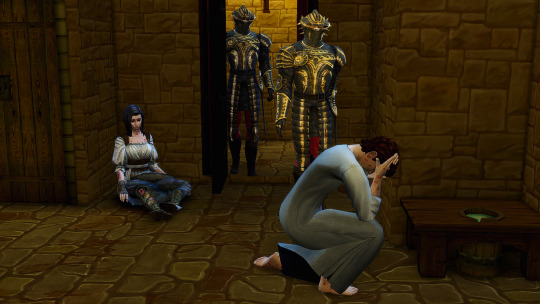

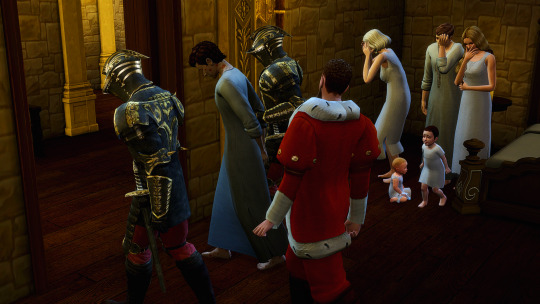
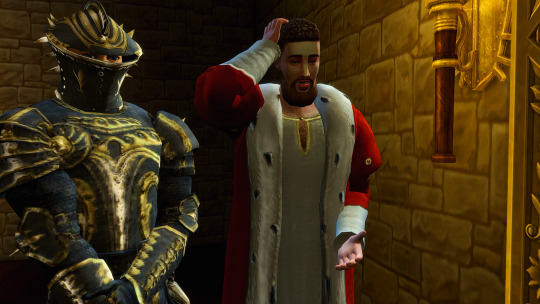

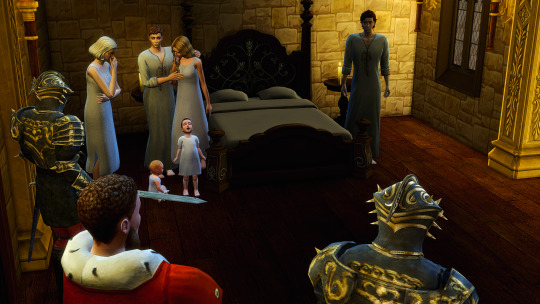
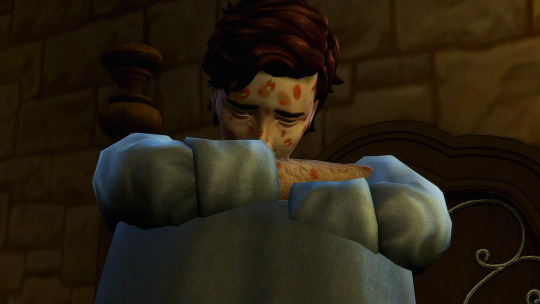



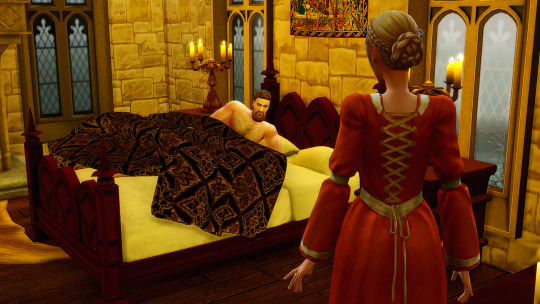

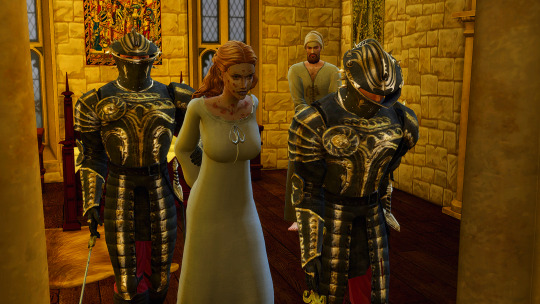

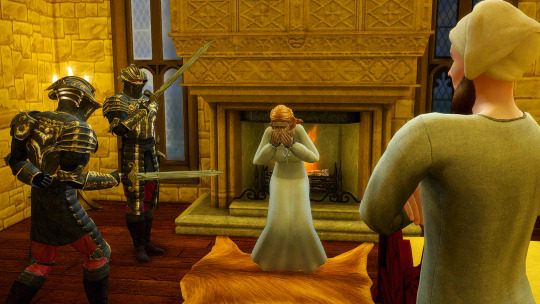

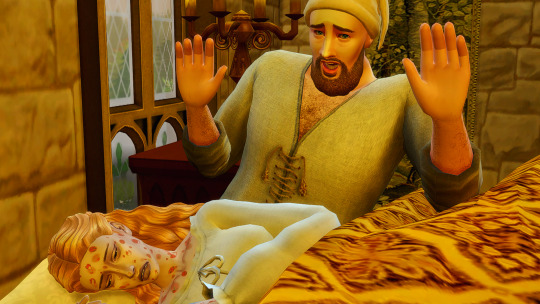
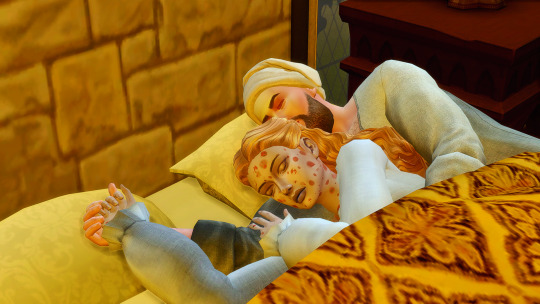

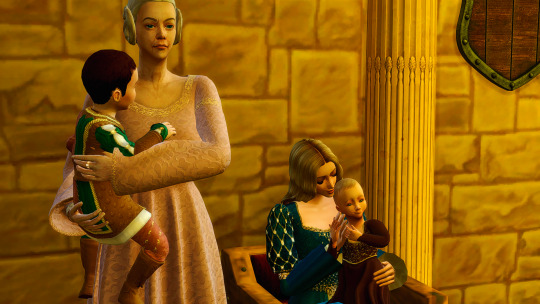
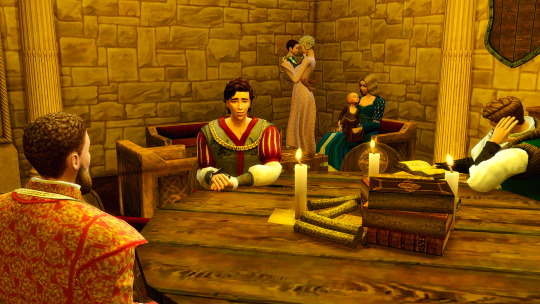
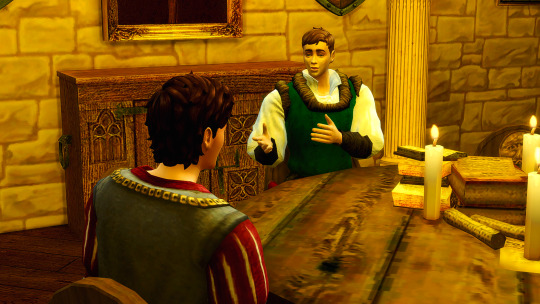




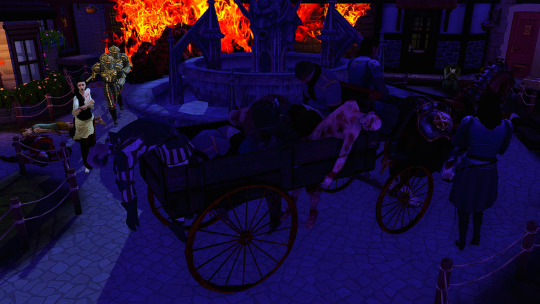
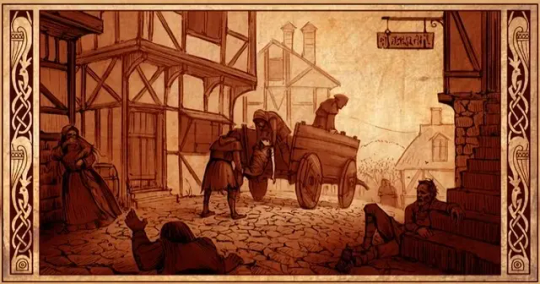
In the spring of 1348, Windenburg was crumbling under the weight of the Black Death. Countless lives succumbed to the relentless plague, streets transformed into macabre scenes of despair. The pervasive stench of burning flesh lingered. The once-thriving city now echoed with the cries of mourning, as the relentless specter of death cast a sinister shadow over every corner. The realm itself seemed to be ensnared in an earthly hell, gripped by an unforgiving fate that spared none.
The merciless plague showed no mercy, claiming victims indiscriminately, children included. Within a heartbeat, entire family legacies crumbled into oblivion. Hope and prayer, feeble defenses against an insidious foe, echoed through homes turned into sanctuaries of desperation. The haunting specter of annihilation lingered, leaving shattered lives in its wake, a testament to the fragility of existence in the relentless grip of the Black Death.
Within the walls of Windenburg Castle, now sealed and guarded, none were granted entry. King Wilhelm, in a rare act of mercy, permitted his aunt, Dorthea, and two cousins, David and Richard, to seek refuge within. Accompanied by David's wife, Corrine, and their two children, Albert and Claudine, they entered the castle grounds before the doors were sealed, shutting out the menacing cries that lurked beyond. The castle became their sanctuary, safeguarded against the relentless onslaught of the Black Death that ravaged the world outside.
Amidst the shadows of the castle, King Wilhelm, David, and Richard gathered around the round table, their countenances marked by deep concern. Expressing gratitude, Richard acknowledged Wilhelm's generosity in providing refuge and began to recount the dire situation outside the castle walls. He detailed the profound suffering endured by David, whose household had succumbed to the relentless plague, compelling them to seek sanctuary within the castle's protective walls.
Family holds an immense significance for David. In 1345, he married Corrine, the youngest daughter of the late King Thomas and the now Dowager Queen Priscilla of Bagley. Corrine is also the younger sister of Queen Cordelia. Their union, marked by profound love, resulted in a strong familial bond with their children. Additionally, David's mother, Lady Dorethea, the widow of the late Prince Arthur of Windenburg and godmother to King Wilhelm, remains a cherished and vital part of their family structure.
On a fateful morning the following summer, King Wilhelm lay in the opulent confines of his bedchambers with Anne Matthews, his beloved mistress, as was his nightly routine. Unbeknownst to him, the looming horror of the black death was about to unravel. As Wilhelm awoke, the dim light filtering through heavy drapes revealed a ghastly sight, the telltale markings of the plague adorned Anne's body. Shock and terror gripped him instantly, and with a frantic urgency, he leaped from his bed, jolting Anne awake in abrupt dismay.
Wilhelm, stricken with terror, recoiled at the ghastly sight before him. Unable to bear looking directly at Anne, he pointed with dread to the markings of the plague that marred her once-vibrant skin. His voice trembled with fear as he uttered, "You're covered in the markings of the plague!" The shocking realization hit him like a relentless wave, and the gravity of the situation sank in. Fearful for his own health, knowing he had shared a bed with her, Wilhelm urgently called for his guards. In the midst of his panicked plea, Anne, overcome with terror, implored him to be reasonable, her pleas echoing in the dimly lit chamber.
With a sense of urgency, the guards burst into Wilhelm's chambers, swords drawn, catching Anne off guard. She stood momentarily frozen, the cold glint of steel sending shivers down her spine, before collapsing to her knees in a desperate plea. "Please, Wilhelm, spare me. I am so very frightened," she implored, her voice quivering with terror. Wilhelm, torn between mercy and the harsh reality of the plague, couldn't bring himself to order her immediate execution.
Instead, he directed his guards to escort her down to the dungeons of the castle. Within those dark, damp confines, nobles and staff alike languished, a haunting testament to the unyielding grip of the deadly contagion. The decision weighed heavily on Wilhelm, his actions a desperate attempt to contain the spread within the castle.
Witnessing Anne's fate, Wilhelm confronted the harsh reality of the plague's rapid grasp. Fearing for his own life, he swiftly left to be bathed, his clothes and bedding consigned to the flames, a desperate attempt to purge any potential contamination.
With his mistress gone, Wilhelm, confronted with the stark reality of the abstinence he would face in the wake of this disease, summoned Cordelia to his chambers. He felt that Cordelia's presence could provide solace amid the pandemics chaos. As she reluctantly joined her estranged husband, the atmosphere grew thick with sorrow and uncertainty.
As the chilling winds of the plague swept through the land, Cordelia, existing in the shadow of profound despair that enveloped the realm, discovered the presence of new life within her. In the midst of death's unrelenting dance, the prospect of impending motherhood emerged as a luminous beacon of hope, casting its feeble light against the oppressive darkness.
As the winter of 1348 approached, the grip of the plague tightened its hold. Corrine awoke in her chambers to a harrowing sight. Her beloved husband, David, cloaked in the ominous markings of the deadly affliction. A primal scream escaped her lips, shattering the cold silence of the castle. The chilling wail reverberated through the stone walls, rousing the family from their uneasy slumber. Lady Dorthea crumpled to the floor in anguish at the sight of her son. Emotions ran high, unsettling the young children, as David sat, helpless and defeated, huddled in his bed, grappling with the cruel hand fate had dealt him.
Soon after Corrine's anguished screams pierced the air, the castle guards, accompanied by King Wilhelm, arrived at the chamber doors. With an air of trepidation, they entered the room, the heavy doors swinging open to reveal the somber scene within. The family, gripped by fear and uncertainty, stared at the intruders, their collective breaths held in suspense, awaiting the unfolding of the inevitable.
Dorthea, overcome with desperation, rushed toward King Wilhelm, her eyes pleading for mercy. The vigilant guard, wielding his sword as a stern barrier, halted her advance. She sank to her knees, tears streaming down her face, as she implored, "Please, Wilhelm, as your godmother, I beseech you. Spare my son. Remember the bond you shared with Arthur; David carries a piece of him." Wilhelm, confronted by Dorthea's tearful plea, met her gaze with an unusual expression of sorrow.
He extended a solemn promise, assuring her that David would not face execution. Instead, he would be confined to isolation, receiving care from the castle's physicians. Overwhelmed with grief, Dorthea approached Richard with tear-filled eyes, her voice silenced by the weight of despair. The knights gathered around David, whose family was enveloped in sorrow. Sobbing echoed through the chamber as the guards escorted him away, his two-year-old son, Albert, calling out for his papa in bewildered innocence, unaware of the grim reality unfolding before him.
With somber determination, the knights guided David through the echoing corridors of the castle, each step carrying the weight of impending doom. As they descended into the depths, the cold dungeons of Windenburg Castle greeted them. The air was thick with the stench of despair, and David was thrown into a bleak cell, surrounded by others afflicted by the cruel grasp of the plague. The door slammed shut, sealing him in darkness. David stood amidst the chilling silence, fear etched across his face as he confronted the grim reality of his uncertain fate, staring directly into the eyes of death itself.
#simsmedieval#royalsims#sims4#windenburg#royal#sims#gameofthrones#thesimsmedieval#royalty#simsstory#story telling#short story#ts4 story#story#sims 4 story#original story#stories#storytime#narrative#fiction#the sims#sim legacy#royalty sims#historical sims#sims 4#simblr#sims 4 gameplay#sims 4 cc#sims 4 screenshots#my sims
57 notes
·
View notes
Text


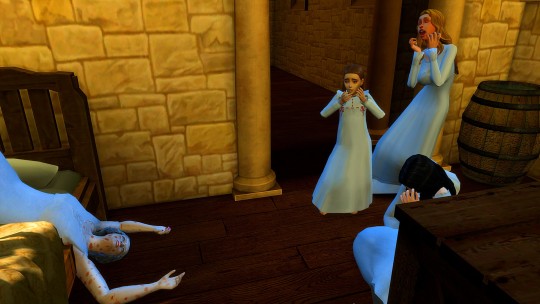

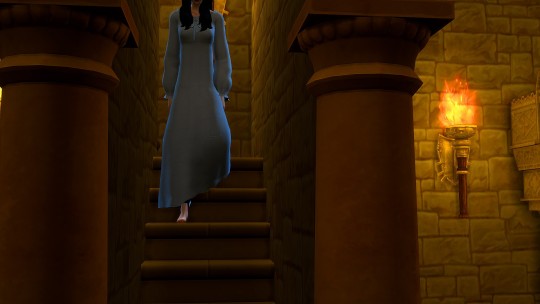









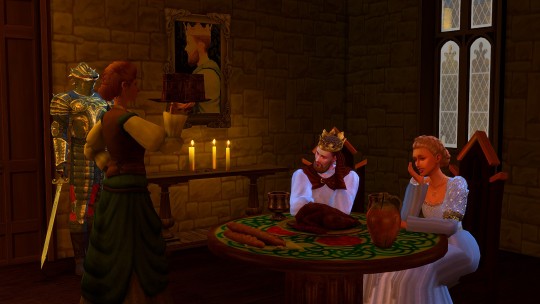
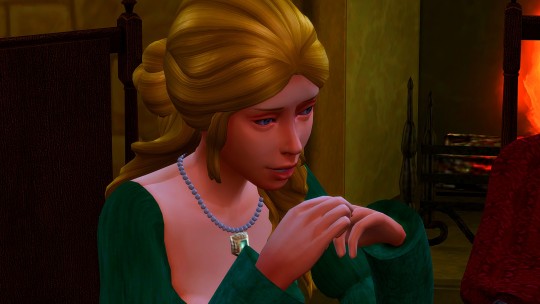



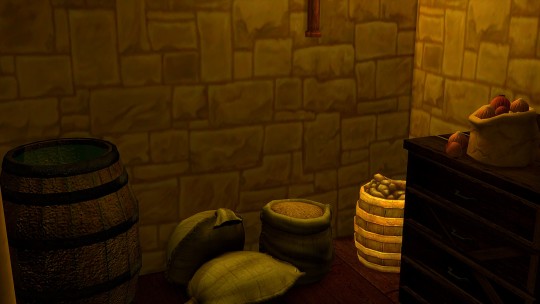


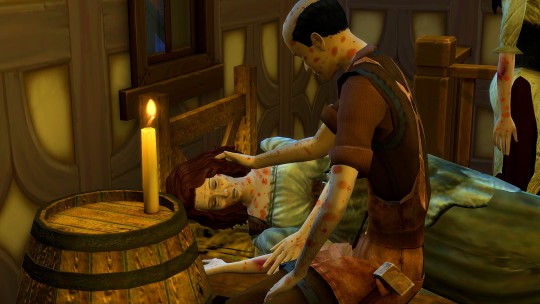
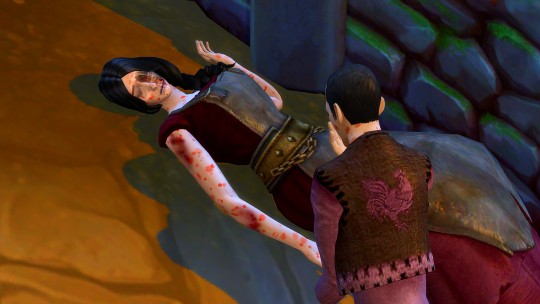

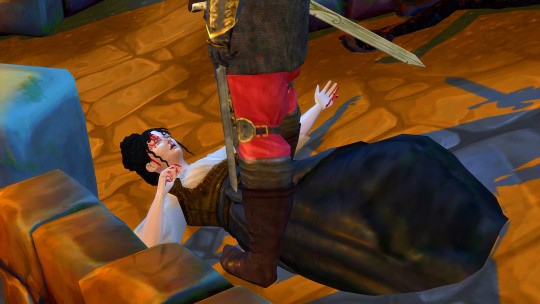
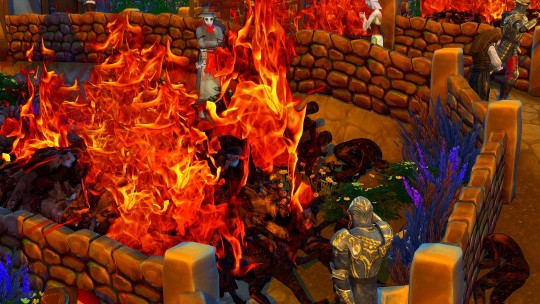



In the ensuing weeks, Westsimster became a landscape of chaos, consumed by flames, smoke, and devastation as King Wilhelm's knights mercilessly raided the city, burning everyone infected with the plague. The numbers of the afflicted had surged to a point where King Wilhelm, in a desperate attempt to rid the disease, ordered The Tower to be locked down. His knights were instructed to burn not only the infected people but also everything they possessed. The streets were now lined with piles of burning bodies, casting a ghastly glow on the once-vibrant city.
Plague doctors, clad in eerie masks, roamed the area, attempting to study the illness. However, the knights, driven by fear and brutality, continued to kill innocent people, tossing them into the fires. The black death was relentless, and if the knights didn't get to you, the plague itself claimed lives within a matter of days. Thousands of Windenburg's citizens perished, marking a dark and tragic chapter in the city's history.
Within the confines of Windenburg Castle, the situation was far from contained. Lady Catherine Carling, one of Cordelia's ladies-in-waiting, succumbed to the black death in her chambers. Plague doctors and knights, astounded by the rapid spread of the disease, witnessed her attendant confirming the grim news. King Wilhelm declared the castle under quarantine, isolating various royals and nobles in different chambers, providing meager supplies of dry foods and root vegetables, with doors boarded up until further notice.
Queen Cordelia, Prince Wilhelm, Augusta, and Lady Rotchford found themselves confined within the east wing of the castle. As they sat around a round table by the fireplace, peering at a small loaf of bread and a bowl of pottage, Prince Wilhelm voiced the frustration prevalent among them. "Why have things turned out this way? And when can we have meat again?" Cordelia responded somberly, "My dear, we have scarce provisions, and meat is a luxury. Make do with what's before you."
While Cordelia faced scarcity, King Wilhelm lived in stark contrast. Quarantining in his opulent bedchambers with his favored mistress, 23-year-old Anne Matthews, he enjoyed access to servants and the finest foods. Adorned in jewels, they seemed oblivious to the plight outside. Garlic vines hung throughout the king's quarters in a feeble attempt to ward off the plague. While Windenburg suffered, King Wilhelm and Anne reveled in indulgence, Anne even assisting Wilhelm in the bath.
As the cold months descended, Windenburg remained gripped by the relentless plague. Matthias, too, had fallen victim to the insidious grasp of the black death. The guard, bearing a solemn expression, approached King Wilhelm with dire news. Matthias's condition had been deteriorating with each passing day. He hesitated before continuing, "Your Grace, I understand your command to burn the infected, but I felt compelled to bring this to your attention as Matthias is your trusted advisor."
Wilhelm, with an icy gaze, turned to the guard and uttered in a grim tone, "Burn him." Without a moment's pause, he began to walk away, leaving the guard to carry out the heartless command. As Wilhelm approached the door, the sounds of a struggle echoed from Matthias's chambers. In a feeble attempt to plead for mercy, Matthias, weakened by the disease, called out, "Your Grace! Please have mercy. After everything I have helped you with over the years, please, sir!" Despite the desperate plea, Wilhelm exited the room without a flicker of emotion, as if the poignant scene had left no impact on his conscience.
On that same fateful morning, Augusta stirred from her slumber in the east wing. Determined to lend a helping hand, she decided to descend the cold stone steps and join Lady Rotchford in preparing breakfast. However, as she walked through the door to Lady Rotchford's room, the scene that unfolded before her was one of immediate shock and dread.
Lady Rotchford lay lifeless on the floor, having seemingly fallen from her bed during the night. Her complexion, once vibrant, now bore the pallor of death, marked by the telltale signs of the plague. Augusta's scream echoed through the castle as she crumpled to the floor in sheer horror. Lady Rotchford, who had been a constant presence in Augusta's life since infancy, now succumbed to the merciless grasp of the black death.
The commotion drew Cordelia and Prince Wilhelm rushing to the scene. Their faces contorted with disbelief, they joined Augusta in the chamber, their collective anguish palpable. Cordelia's shock turned into desperate action as she pounded on the chamber doors, futilely pleading for a response. The thick stone walls remained unyielding.
Defeated, Cordelia sank to the floor alongside Augusta and Prince Wilhelm. The weight of the tragedy pressed upon them, the reality of the plague's presence within the castle becoming ominously clear. In the midst of their grief, Cordelia couldn't shake the haunting thought if Lady Rotchford, confined to her room, had fallen victim to the infection, the black death had infiltrated the very heart of their sanctuary, its invisible menace threatening to engulf them all.
#simsmedieval#royalsims#sims4#windenburg#royal#sims#gameofthrones#thesimsmedieval#royalty#simsstory#simmer#historical sims#royalty sims#sim legacy#sims 4#simblr#sims 4 gameplay#sims 4 cc#sims 4 screenshots#my sims#the sims 4#the sims#showusyoursims#historicalsims#history#historical#historic#ts4 decades challenge#ultimate decades challenge#decades legacy
48 notes
·
View notes
Text

My dear followers, I am providing you with an updated map of the SimWorld in 1347. As the story progresses, I will offer updated copies of the map. I hope you are all enjoying the story, and stay tuned for 'The Black Death: Part 2,' which will hopefully be released before the end of the week.
#simsmedieval#royalsims#sims4#windenburg#royal#sims#gameofthrones#thesimsmedieval#royalty#simsstory#storytelling#short story#maps#medieval#middle ages#14th century#the sims#royalty sims#sims 4#sims 4 gameplay#sims 4 cc#sims 4 screenshots#simblr#my sims#the sims 4#ts4#historical sims#historicalsims#history#historic
38 notes
·
View notes
Text



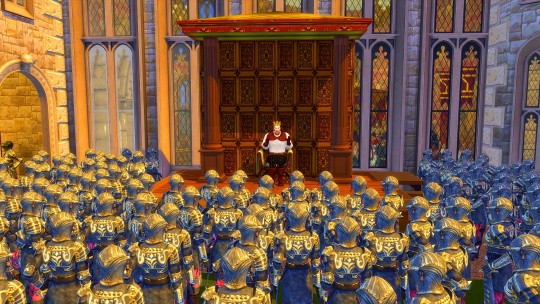
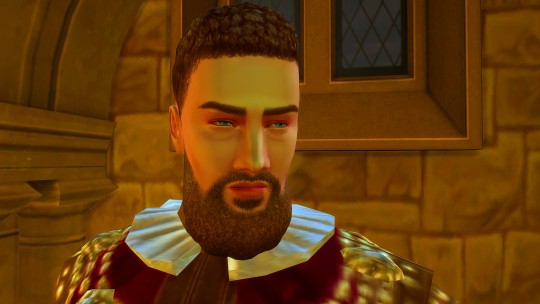
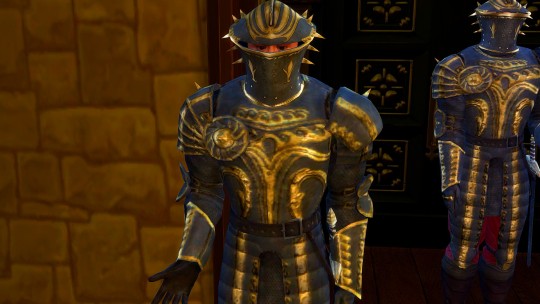


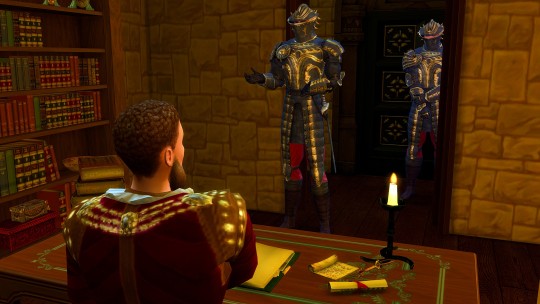
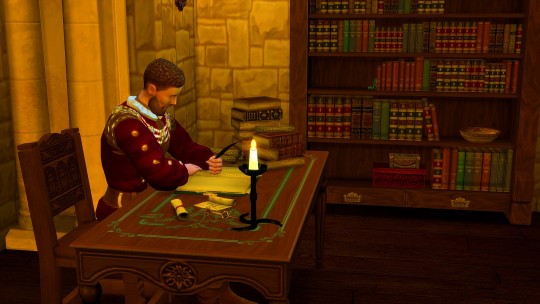



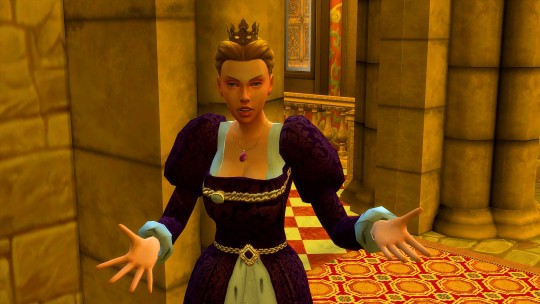

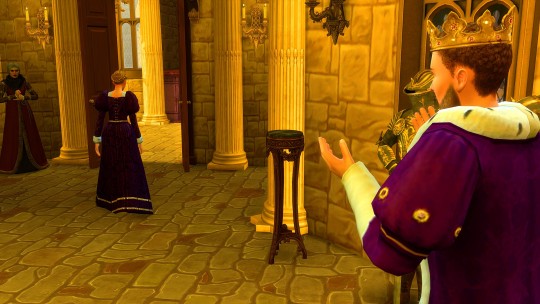


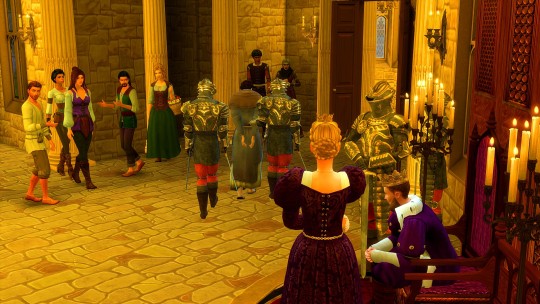


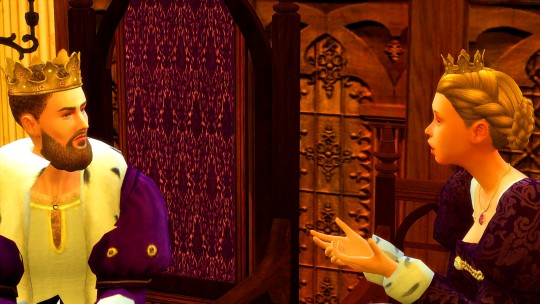


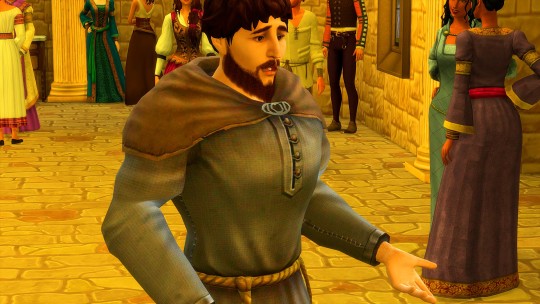
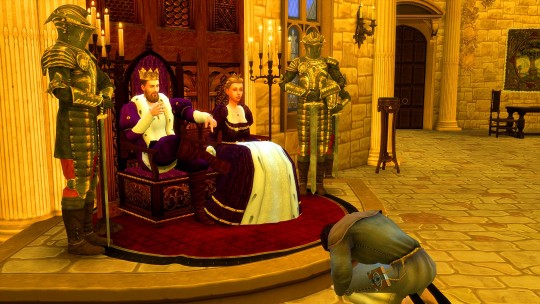
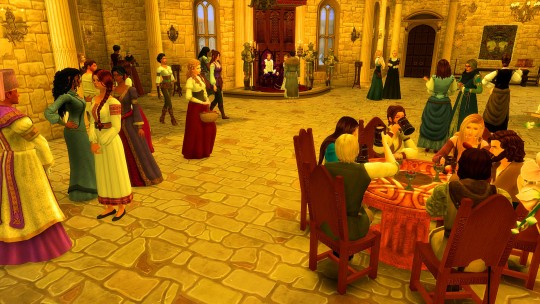
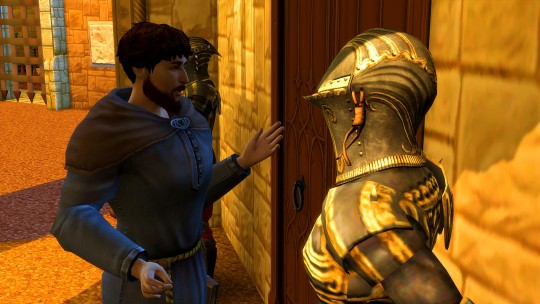


In the fall of 1347, the fading light cast long shadows across the courtyard of Windenburg Castle as Brother John O'Cleary, a Jacoban Monk from Westsimster, rode in with dire tidings. The atmosphere was thick with tension as he dismounted his horse and approached the main doors. The guard, stern-faced and clad in armor, listened intently as Brother John conveyed the grim news. A horrible illness had infiltrated Windenburg, claiming countless lives with each passing day.
Led into the king's court, Brother John stood before the imposing figures of King Wilhelm and Queen Cordelia, who sat atop their thrones, surveying the assembled nobles. King Wilhelm, exhibiting skepticism and insensitivity, pointed to the ground, gesturing for Brother John to bow before him. Brother John complied, his eyes filled with despair. He began recounting the devastation the sickness had wrought in Westsimster, the countless lives lost, and the escalating numbers of the infected.
However, King Wilhelm met the news with skepticism and insensitivity."Your tales of woe sound more like the fantasies of a frightened monk than the realities of our realm. I would expect a man of the cloth to bring solace, not baseless fear-mongering. Perhaps your divine connections are not as reliable as you claim." he questioned, his face displaying disbelief. Brother John, on his knees, pleaded with King Wilhelm, "I beseech you, your grace, please try to understand the severity of this matter." Cordelia turned to her husband, stating that he shouldn't take this matter lightly and that the monk had no reason to lie. Ignoring her, Wilhelm called for his guards to remove the monk from the castle.
Brother John begged the king again to send help, but to no avail. Cordelia, in a fluster, stood from her throne and watched the guards take the man away. She looked to her husband in anger, scolding his poor judgment and stating that this situation could be very serious. Wilhelm, in a rage, stood from his throne and looked to his wife angrily, "How dare you go against the order of the king!" He defended his claim, stating that this was likely a hoax to lure him into the city.
Cordelia scowled at Wilhelm, ignoring his statement, and walked away towards the doors, hoping to catch up with the guards before they threw the monk out. As she walked away she called out to Wilhelm, " What good is a king to a realm full of corpses!!?" Wilhelm, dumbfounded by his wife's statement, yelled back at Cordelia, "Disobey me again, and things will not end well for you, dear wife!"
Cordelia caught up with the guards just in time. "Halt!" she yelled. She then commanded them to release the man. The guards looked at each other in confusion, and one of them stated, "The king has commanded us to remove this man, so that is what we will do." Cordelia threatened the men. "If you go against your Queen, I swear it will be your final move, sir." The guards then sheepishly released Brother John.
Cordelia then went over to him, "I'm sorry for my husband's incompetence," and pleaded with him to give her more details on the situation at hand. She then looked to the guards that were made to apprehend Brother John and commanded that they escort him back to Westsimster and get a full report on the happenings, warning them never to question her authority again.
Later that night, King Wilhelm sat in his office, working on matters of state. The young guards had returned from Westsimster, both their faces pale as if they'd seen a ghost. The young guard looked to King Wilhelm and confirmed the grim news. He explained that bodies lined the streets, people were starving, and the situation seemed to be getting worse. "Dispose of the infected, burn them to ashes. It's the only way to rid ourselves of this pestilence." Wilhelm callously stated. The guard looked to Wilhelm with shock at his lack of empathy for his people. He then claimed that the majority of the city was infected, and soon the numbers would increase. King Wilhelm knew there was only one thing he could do.
As dawn broke, King Wilhelm summoned 10,000 of his most formidable knights to gather in the vast courtyard of Windenburg Castle. Seated regally upon his throne, he peered out over the multitude of armored figures, their presence a formidable force against the backdrop of the castle's stone walls.
With a grave demeanor, Wilhelm addressed the assembly, revealing the dire circumstances that had befallen Westsimster. He spoke of a mission, a grim task of "cleansing" the afflicted city. His decree was uncompromising – every individual found infected must be escorted to The Tower, where they will be confined. Those who resisted compliance were to face immediate incineration on-site. Even the deceased, victims of the merciless plague, were not to be spared; their bodies were to be consumed by the cleansing flames.
In a bid to contain the burgeoning catastrophe, Wilhelm declared a stringent lockdown of Windenburg Castle. His authoritative voice echoed in the air, proclaiming, "No one, unless explicitly instructed otherwise, shall venture beyond the castle walls or breach its gates under any circumstances."
The knights, sworn to uphold the king's commands, absorbed the weight of their sovereign's words. The ominous task before them cast a somber shadow over the courtyard, as the castle, once a bastion of protection, now stood as both a refuge and a prison in the face of an insidious chapter in Windenburg's history.
#simsmedieval#sims4#royalsims#windenburg#royal#sims#thesimsmedieval#gameofthrones#royalty#simsstory#storytelling#short story#ts4 story#story#sims 4 story#original story#stories#story telling#short stories#fiction#medieval#middle ages#medieval art#medieval history#historical#14th century#plauge doctor#the black death#simmer#historical sims
45 notes
·
View notes
Text


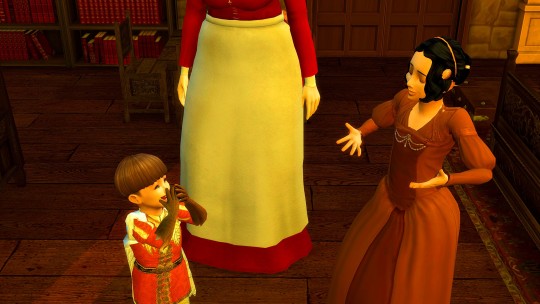


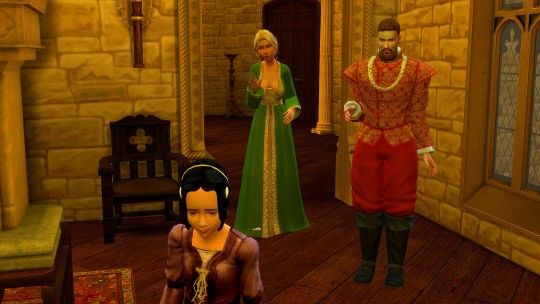

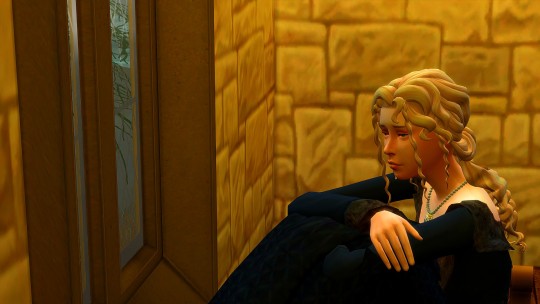
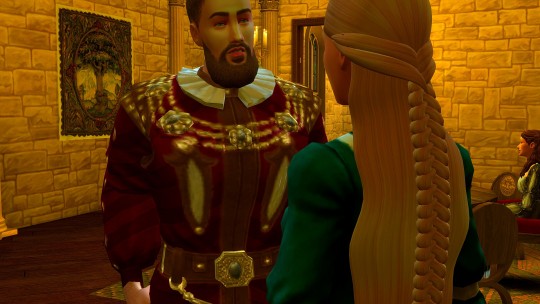





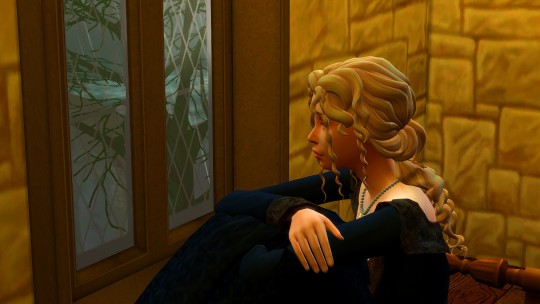

In the months following King Thomas's passing, the grand halls of Windenburg Castle were cloaked in somber shadows as the relentless rain poured outside. The absence of her beloved father weighed heavily on Queen Cordelia, casting a deep pall over her life. To make matters more challenging, her relationship with her husband, Wilhelm, had transformed into an unbearable ordeal. His character had undergone a drastic metamorphosis, as he now sought to wield more control over Cordelia, something he had never dared to do in her father's presence. Their incessant quarrels and their attempts to avoid one another turned the castle into a prison for Cordelia, stifling her every breath.
As Cordelia gazed out at the stormy sea from her window, she couldn't help but reflect on her initial misconceptions about Wilhelm. She had never truly comprehended the depths of his character, naively believing that he might change for the better with time. However, the passing years had shattered her illusions, revealing a man she could hardly recognize.
The passing of Queen Fiona, Augusta's mother, marked the beginning of a dreadful chapter. Without delay, Wilhelm ruthlessly stripped his daughter of her privileges. Augusta's ladies were commanded to empty her chambers, discarding many of her most cherished possessions. For Augusta, a mere three-year-old at the time, the sudden upheaval was a source of deep confusion and heartache. She couldn't fathom why the nurturing women who had always been by her side were abruptly absent. This heartbreak only compounded the emotional turmoil she was already enduring at the hands of her own father.
Cordelia's discovery of Wilhelm's ruthless actions towards his own flesh and blood filled her with an indignant fury. In the period preceding their marriage in 1336, she confronted Wilhelm with a steely resolve. She adamantly refused to proceed with the wedding unless he showed mercy to Augusta, allowing her to remain at the castle. Wilhelm begrudgingly conceded to her demand but remained steadfast in his refusal to reinstate Augusta's titles.
The years that followed were marked by growing doubts in Cordelia's heart. Wilhelm's cruelty towards Augusta showed no sign of abating. Every time he laid eyes on his daughter, he felt the need to continually remind her of his disdain and disappointment. His unrelenting insistence that Augusta might be a bastard due to her mother's alleged history was a cruel and merciless assault on the young girl's fragile emotions.
In contrast, Cordelia assumed the role of a mother figure for Augusta, demonstrating kindness and compassion from the very beginning. She worked diligently to build a deeper and more meaningful relationship with the girl than she had ever shared with her own father. When Cordelia's son was born, Augusta readily embraced her role as the young prince's older sister, fostering a bond of affection and protection.
Now, in the year 1341, Queen Cordelia's connection with her son and stepdaughter had grown remarkably strong. Unlike other queens, she adopted a hands-on approach, insisting on spending quality time with the children daily. Her collaboration with Lady Rotchford in caring for the children further solidified her unique position as a devoted and loving mother.
As Queen Cordelia continued to gaze out at the tempestuous sea from her window, a profound sense of sorrow welled up within her. The perpetual turmoil in her marriage weighed heavily on her heart. While her love for her family remained a guiding light, it was impossible for her not to question whether a resolution to their family's turmoil would ever be attainable.
#simsmedieval#sims4#windenburg#royalsims#royal#sims#thesimsmedieval#gameofthrones#royalty#simsstory#my sims#historical sims#royalty sims#sim legacy#sims 4#simblr#sims 4 gameplay#sims 4 cc#sims 4 screenshots#thesims4#thesims4cc#the sims 4#historicalsims#history#legacy challenge#ts4 legacy#sims 4 legacy#ts4 decades challenge#ultimate decades challenge#decades legacy
39 notes
·
View notes
Text

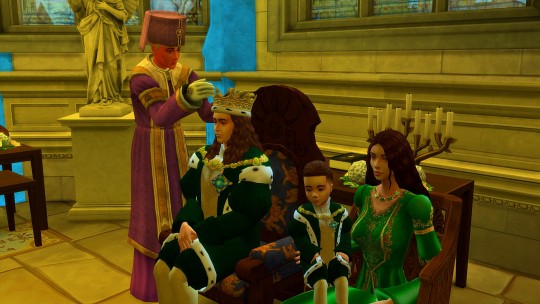



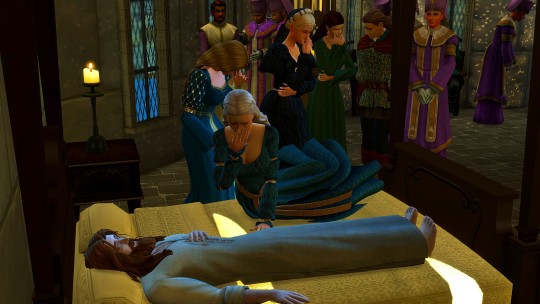

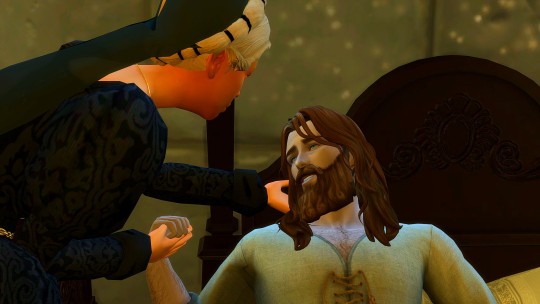

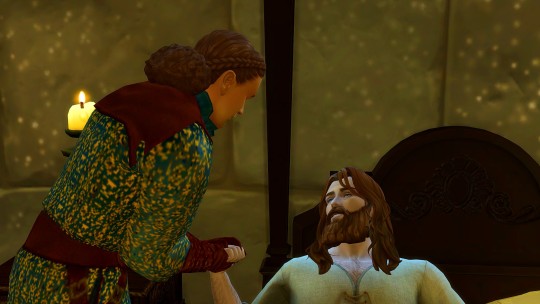
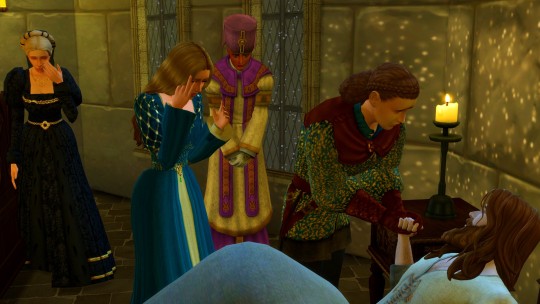




In the year 1340, with the relentless approach of winter, a somber cloud of foreboding cast its shadow over Bagley Castle. Beneath a moonlit snowstorm, the royal family of Bagley convened in King Thomas's chambers. His grace lay gravely ill, a pale reflection of the powerful monarch he had been. Queen Priscilla, his devoted wife, cradled her ailing husband in her arms, the fever coursing through him like a relentless tempest.
King Thomas's children, Prince Henry, his wife Princess Philippa, their young son Harold, and Thomas's youngest daughter, Princess Corrine, stood by, sharing a somber vigil. Queen Cordelia, Thomas's eldest daughter and the Queen of Windenburg, was also present. They had all come to bid farewell to their father, a truly remarkable man who had forged a sprawling empire, shaping their destinies into the annals of history. Amidst the quiet desperation of the chamber, Prince Henry held his sister Corrine close, a pillar of strength as she wept into his shoulder, unable to witness their once indomitable father in such a weakened state.
In a poignant moment of lucidity, Thomas summoned his son. Henry, his heart heavy, approached the bedside, gently taking hold of his father's frail, cold hand. Amid the vulnerability of illness, Thomas's eyes held paternal pride and deep affection as he praised his son.
In heartfelt words, Thomas spoke of his belief in Henry's potential to be a resolute and capable King after his own time had passed. In this solemn exchange, Henry pledged his unwavering commitment to honor his father's legacy and to serve the Kingdom with the utmost devotion.
Then, with waning strength, Thomas called his eldest daughter, Queen Cordelia, to his side. He professed his profound love for her and offered paternal counsel. He urged her to remain vigilant regarding her husband's actions and to watch over her younger brother. Cordelia, with a gentle caress, reassured her father. She spoke with the wisdom of a seasoned queen, promising that he would witness the sunrise for many more days to come.
Yet on the following morning, an unmistakable shift in the atmosphere settled over Bagley. It was an eerie silence, a void, which resounded with the loss left in the wake of King Thomas's passing. Queen Priscilla, her heart shattered, had been a witness to her beloved's final breath. At the age of 59, King Thomas of Bagley had departed from this world, leaving behind a kingdom and a family forever changed.
In the solemn quiet, with grief etched upon every face, the royal family paid their final respects to their fallen patriarch. The king was dressed in his resplendent regal attire, his presence preserved for eternity. As his family grieved, they knew that the burden of the realm now lay on the shoulders of the new king.
With King Thomas's body carried to The Cathedral of Saint Jacob, all eyes in the room turned toward the newly anointed King Henry and his queen, Philippa. They realized that the weight of leadership had descended upon them, a duty they would bear together. King Henry gazed into the future, fully aware of the challenges and responsibilities that awaited him. He pledged to be a just and equitable ruler, upholding his father's legacy in the grand tapestry of history.
In the days that ensued, the solemn mourning that had hung in the air within the grand halls of The Cathedral of Saint Jacob transformed into jubilant cheers. This time, the occasion was the coronation of King Henry and Queen Philippa. As the archbishop reverently lowered the crown upon Henry's head, the young king felt the physical and metaphorical weight of his impending reign.
Then, with grace and dignity, he turned to Queen Philippa and gently placed the radiant queen's crown upon her head. In a touching moment, a smaller, exquisitely crafted crown was positioned upon the head of their young son, Prince Harold. These regal rituals marked the commencement of a new era for the realm of Bagley.
#simsmedieval#sims4#windenburg#royalsims#royal#sims#thesimsmedieval#gameofthrones#royalty#simsstory#simmer#sims 4#sims 4 screenshots#historical sims#royalty sims#sim legacy#simblr#sims 4 gameplay#sims 4 cc#simstagram#the sims community#sims 4 community#the sims#historicalsims#history#historical#historic#game of thrones#14th century#gothic
52 notes
·
View notes
Text


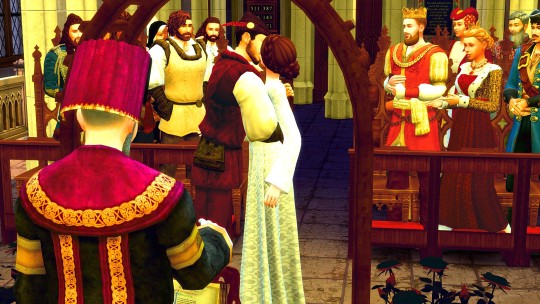
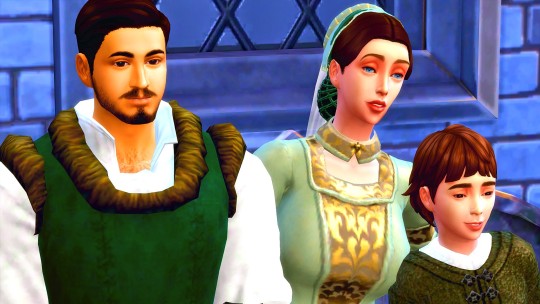


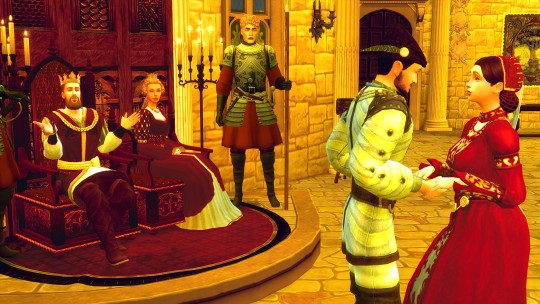

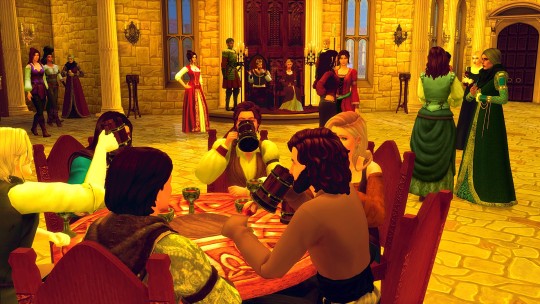
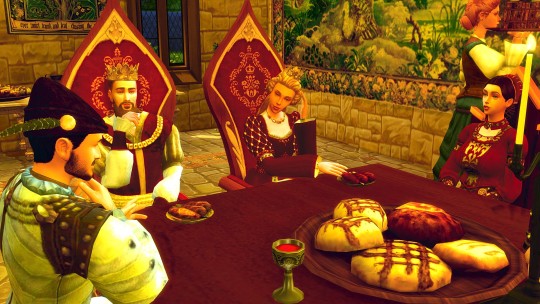



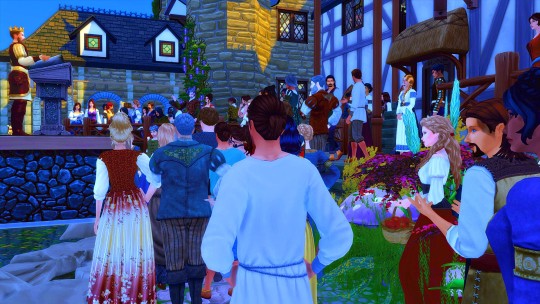

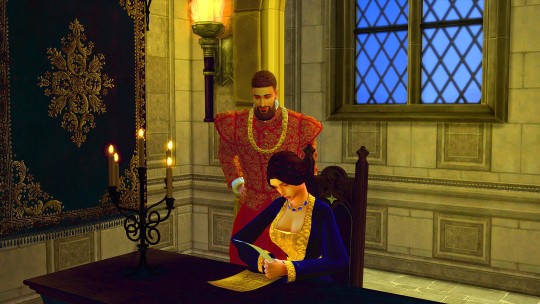
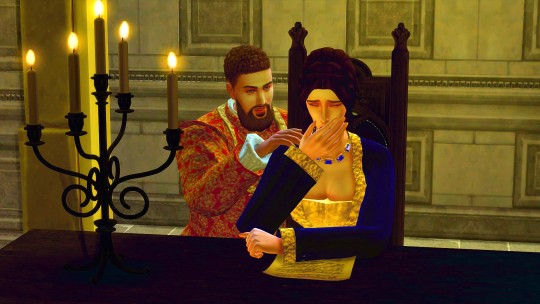

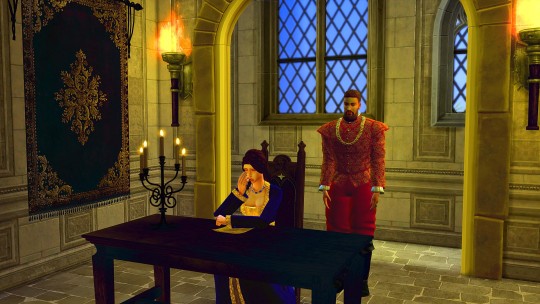




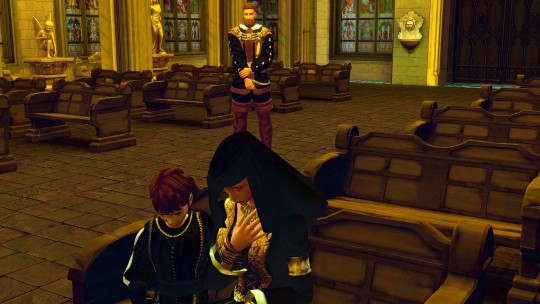
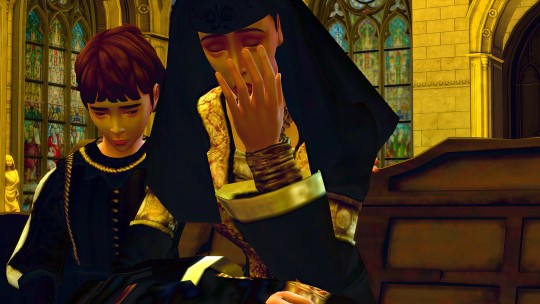



In the summer of 1339, as the rain's gentle touch graced the serene realm of Aarbyville, St. Anthony's Cathedral emerged as a solemn stage for a poignant ceremony. Lady Jane Landgraab, clad in somber mourning attire, her countenance veiled by the shroud of grief, stood beside her 7-year-old son, Lorus. Their hearts weighed heavy, for before them lay the dark stone coffin of Lord Michael Landgraab, who had passed away unexpectedly in his slumber at a mere 40 years of age.
Lady Jane and Lorus, their shared loss etched in their eyes, gazed upon the final resting place of their beloved. Their expressions conveyed profound sorrow, and an aura of disbelief clung to them like a shroud. As the cathedral bells tolled in mournful unison, mother and son leaned upon each other for silent solace, their tears the only words their hearts could speak.
Their shared grief brought them to the tranquil chapel nestled within the cathedral's embrace. Here, silence reigned, providing a sanctuary for their emotions to flow freely. Together, they wept, finding consolation in their shared sorrow, a flicker of light in their darkest hour.
Into this poignant scene stepped Lady Jane's brother, the formidable King Wilhelm of Windenburg. He had come to pay his respects to his brother-in-law and to offer what comfort he could to his grieving sister.
With a heart heavy with sorrow, King Wilhelm approached Lady Jane. His eyes mirrored the shared grief that weighed upon their family. With great tenderness, he expressed his deepest condolences, using words of sympathy and support to alleviate the crushing burden that had fallen upon Lady Jane's shoulders.
Yet Lady Jane's distress ran deeper than mere grief; she was overwhelmed. The responsibilities of her newly acquired title as Lady of Aarbyville had proven to be a burden too great. Lord Michael's sudden and untimely passing had left her in a state of disarray. The prospect of shouldering the governance of the realm, especially with a 7-year-old Lorus in tow, was something she could hardly bear. She felt lost in this unfamiliar role.
Understanding the depths of his sister's despair, King Wilhelm knelt beside young Lorus, his promise to be their unwavering pillar of strength resonating with sincerity. With this pledge of support, Lady Jane glimpsed a glimmer of hope through her tears and embraced her brother in a somber, heartfelt hug.
In the weeks that followed, King Wilhelm became a familiar presence at Castle Landgraab in Aarbyville, the stately home that had graced the Landgraab family since the days of King Otto III of Tredony. Within the confines of her late husband's office, amidst the faint scent of history and the volumes of leather-bound tomes, Lady Jane's inner turmoil became evident. The weight of responsibility bore down upon her, and she struggled to cope with the immense demands of leadership.
Recognizing her predicament, King Wilhelm stood by her side, both as a brother and a ruler. With a heavy heart, he assisted Lady Jane in drafting a decree, one that would relinquish her power and place the realm of Aarbyville under Windenburg's dominion. The decree proposed that Aarbyville would henceforth become a duchy within the expansive realm of Windenburg. It further stipulated that when young Lorus reached the age of 18, he would ascend to the position of Duke, inheriting Castle Landgraab and its responsibilities.
For Lady Jane, this decision was a momentous one. She knew that her signature upon that document would irrevocably alter the course of her life and that of her son. The potential risks and uncertainties weighed heavily on her mind. King Wilhelm, always the supportive brother, placed a reassuring hand upon her shoulder, assuring her that brighter days lay ahead.
King Wilhelm was acutely aware of the strategic importance of this decision. The annexation of Aarbyville was not just about expanding his vast empire; it was also about securing trade routes and a wealth of resources. Aarbyville was strategically located, and seizing power from this region could help King Wilhelm strengthen his political alliances across the globe. This decision had far-reaching implications, and King Wilhelm was resolute in his belief that it was the right path for his kingdom. Aarbyville was once an integral part of the vast Tredonian realm, had remained steadfastly loyal to its Tredonian heritage since the days of King Otto III in the 12th century. When the mighty Tredonian empire fell to Bagley's rule in 1314, Aarbyville chose a different path, emerging as a sovereign state, proudly maintaining its Tredonian roots. Situated along the picturesque coastline, just a few miles from Windenburg's borders, Aarbyville had embraced its unique status. In the wake of the Tredonian empire's decline, this thriving city had evolved into a beacon of commerce and trade, fostering diplomatic relationships with neighboring kingdoms.
In the days that followed, King Wilhelm stood before the people of Aarbyville in the main town square. As he addressed a sea of expectant faces, some filled with trepidation, he outlined the transition into Windenburg's fold. He explained the laws and changes that would come into effect and assured the people that their basic needs, from meat to grain and wine, would be met. With words of hope and prosperity, he promised to rule justly and benevolently.
As the sun dipped below the horizon, King Wilhelm and Queen Cordelia hosted a magnificent banquet at Windenburg Castle. The grand dining room was filled with nobles, royals, and dignitaries from across the realm. The banquet was a celebration of new beginnings, prosperity, and a unified realm.
The tables were laden with a sumptuous feast. A boar's head, fresh-baked bread, a medley of cheeses, an array of succulent meats, and a lavish selection of desserts graced the banquet. It was a celebration that marked not only the integration of Aarbyville but also the dawn of a strengthened realm.
During the banquet, King Wilhelm, ever the astute strategist, observed his favored courtier, Benedict Britechester, gazing intently across the table at Lady Jane. This sight sparked a shrewd idea in the king's mind, one that could benefit not only his kingdom but also Lady Jane's future.
Following the banquet, the celebration continued within the royal court. King Wilhelm and Queen Cordelia presided from their opulent thrones, overseeing the festivities. King Wilhelm then called forth Lord Benedict and Lady Jane to ascend to the dias before the monarchs.
With a voice that resonated throughout the hall, King Wilhelm proposed the betrothal of Benedict and Lady Jane, a union of great honor and strategic importance. It would bind the Britechester bloodline with the royal family of Windenburg for generations to come and Marrying Lady Jane to Lord Benedict would also ensure the Landgraab family's continued loyalty to the crown through her son. This marriage would serve as a binding agreement, solidifying King Wilhelm's control over Aarbyville.
Overwhelmed by this great honor, Benedict took Lady Jane's hands in his. Their eyes locked in a moment of mutual understanding, recognizing that this union was more than politics; it was a connection of two souls.
In the following weeks, as they courted and drew closer, their bond transcended the realms of politics and power. Love blossomed between Lady Jane and Lord Benedict. They found solace and strength in each other, two souls who had weathered the storms of life together.
Lord Benedict not only secured a place in Lady Jane's heart but also embraced a parental role in young Lorus's life. His care and kindness did not go unnoticed by the mourning child. Lorus came to see him not as a stranger but as a guardian and a friend.
By the early fall of 1339, Lady Jane and Lord Benedict were wed at the renowned Westsimster Abbey in a grand and splendid ceremony. It was a union born of politics but solidified by love. As they exchanged their vows, their smiles spoke of the profound connection they had formed.
Following the wedding, King Wilhelm granted the new couple a generous gift. Since his own wedding three years prior, he and Queen Cordelia had worked tirelessly to expand the land that had been gifted to them by King Thomas, Cordelia's father. This area had been transformed into a thriving town with abundant farms and resources. King Wilhelm's gift to the newlyweds was that he had named the realm the duchy of Britechester and appointed Benedict as Duke. The couple came to the throne room at Windenburg Castle, where Wilhelm publicly bestowed upon them the titles of Duke and Duchess of Britechester.
By the spring of 1340, the couple eagerly anticipated the arrival of their first child. It was a testament to the enduring power of love amidst the backdrop of political strategy and destiny. The realm of Windenburg, now further strengthened by the bonds of family and alliance, stood poised for a bright and prosperous future.
#simsmedieval#sims4#windenburg#royalsims#royal#sims#thesimsmedieval#gameofthrones#royalty#simsstory#simmer#historical sims#royalty sims#sim legacy#sims 4#simblr#sims 4 gameplay#sims 4 cc#sims 4 screenshots#my sims#sims 4 edit#14th century#historicalsims#history#historical#historic#world history#legacy challenge#ts4 legacy#sims 4 legacy
52 notes
·
View notes